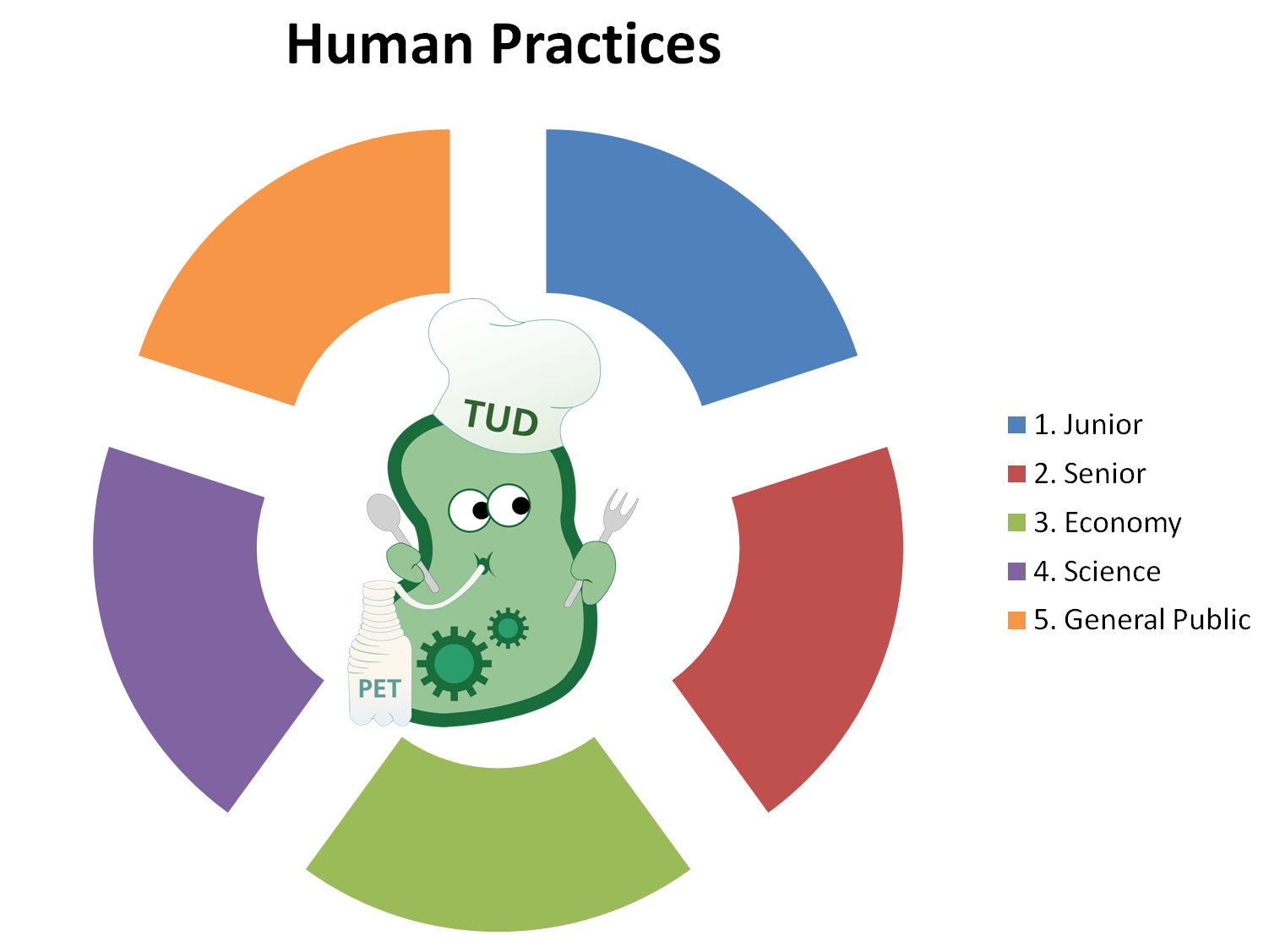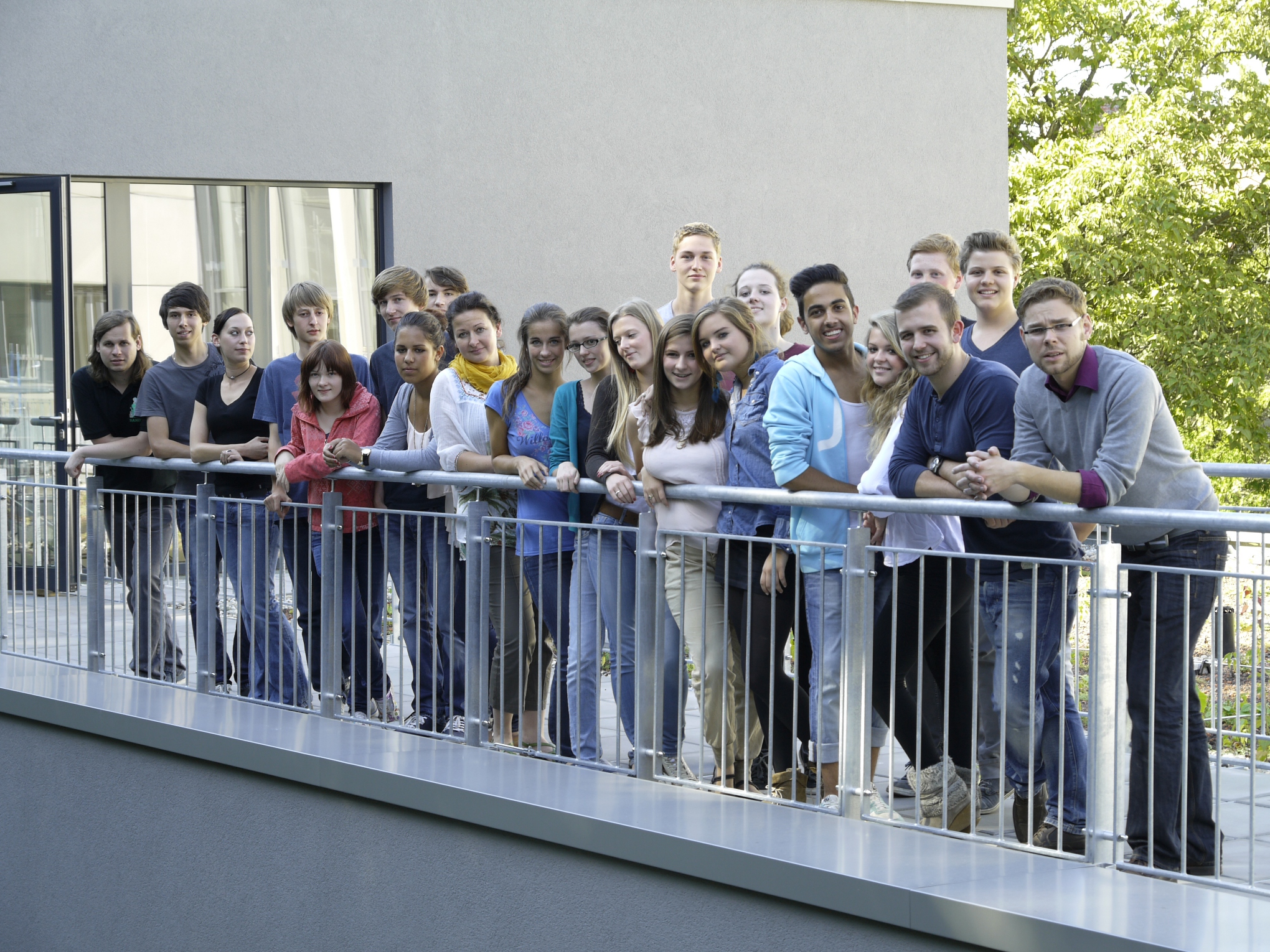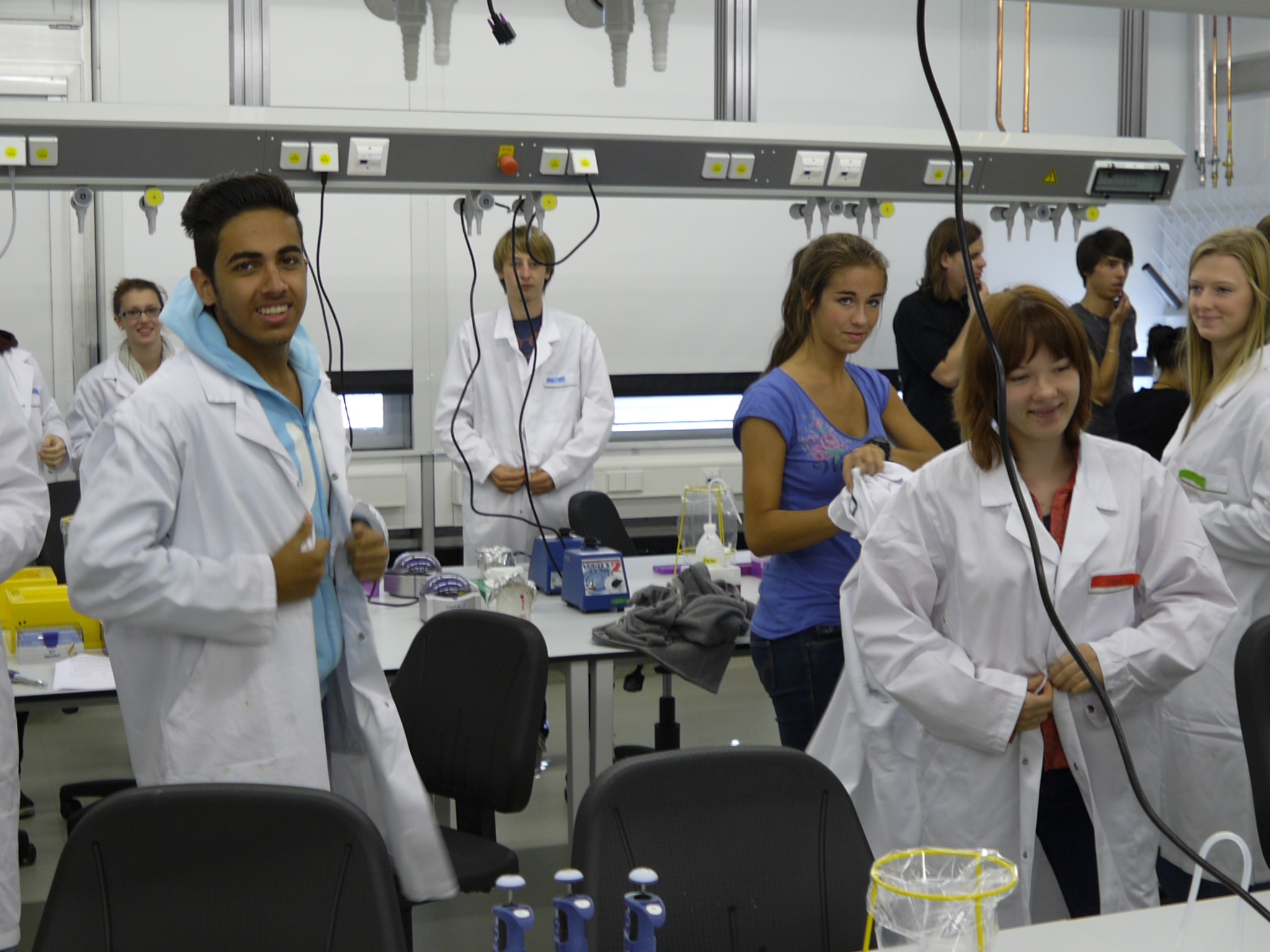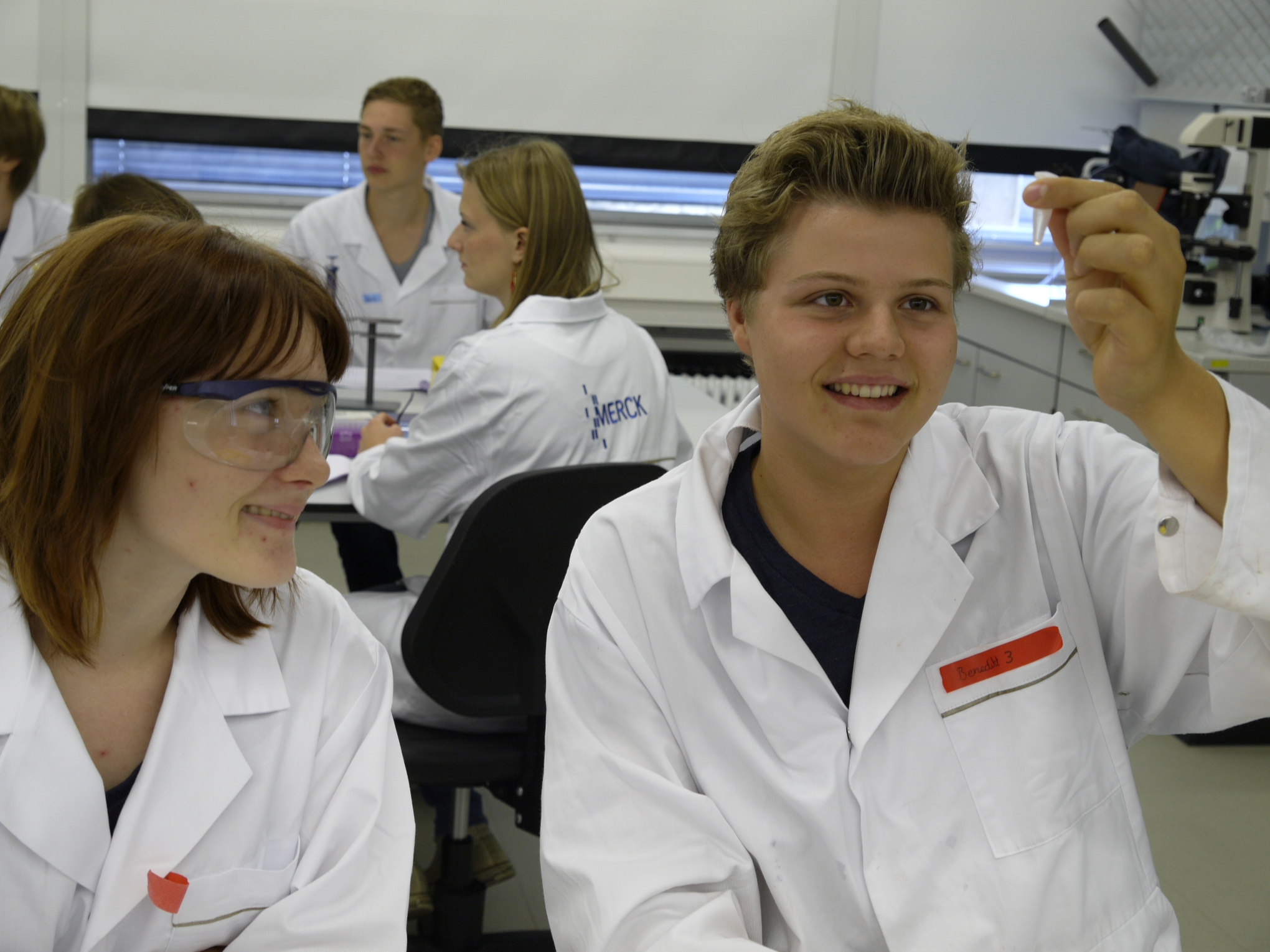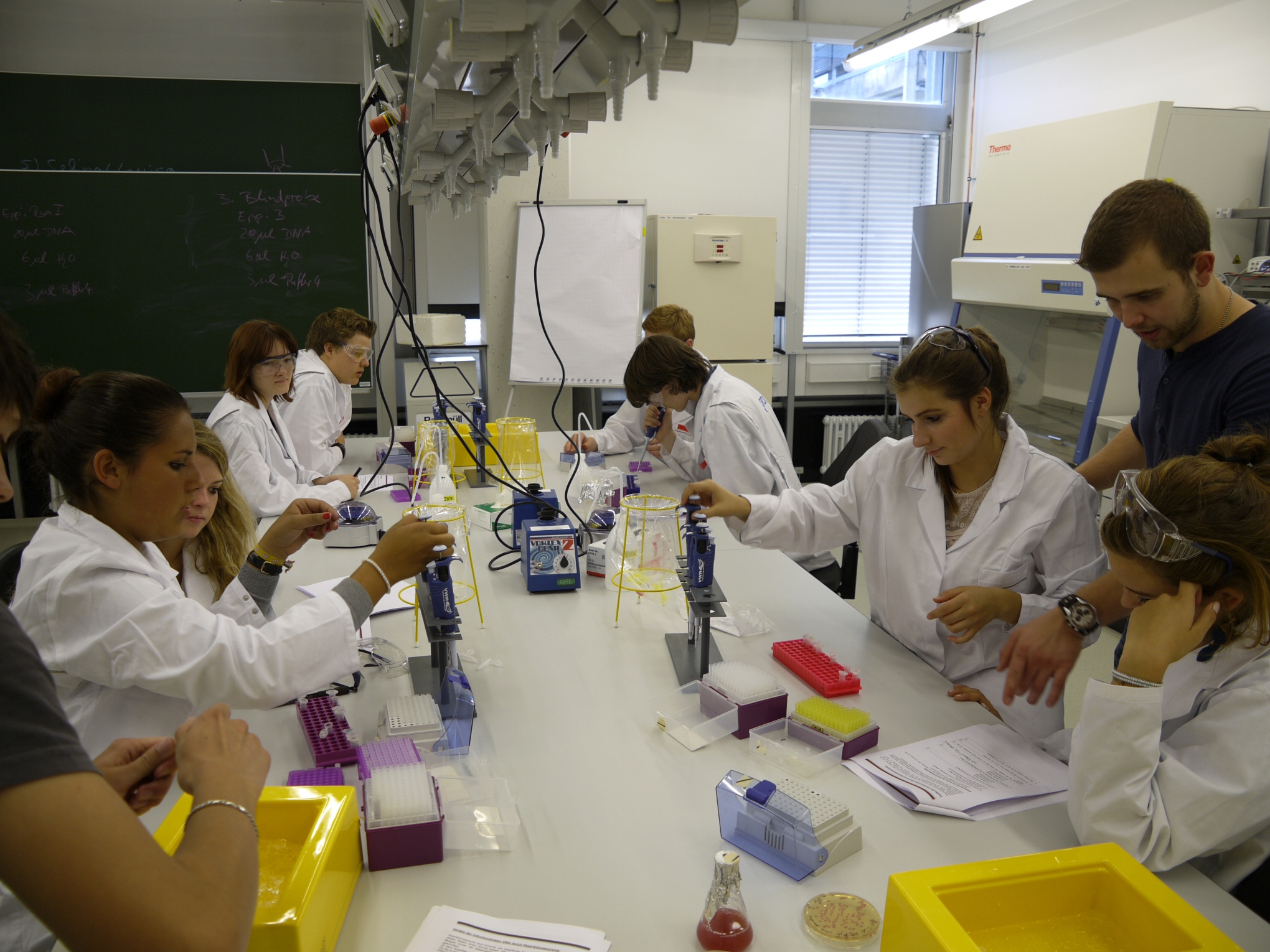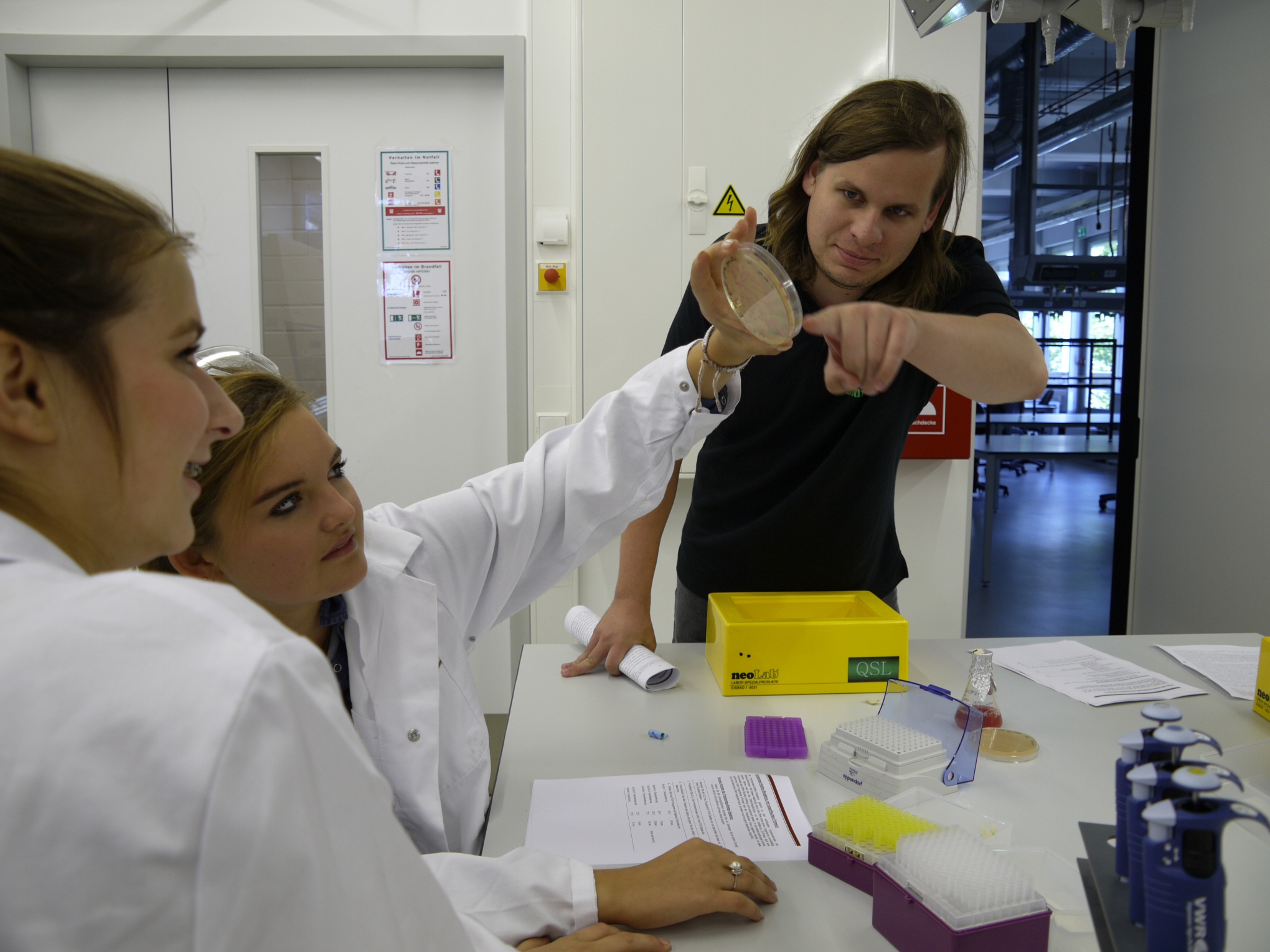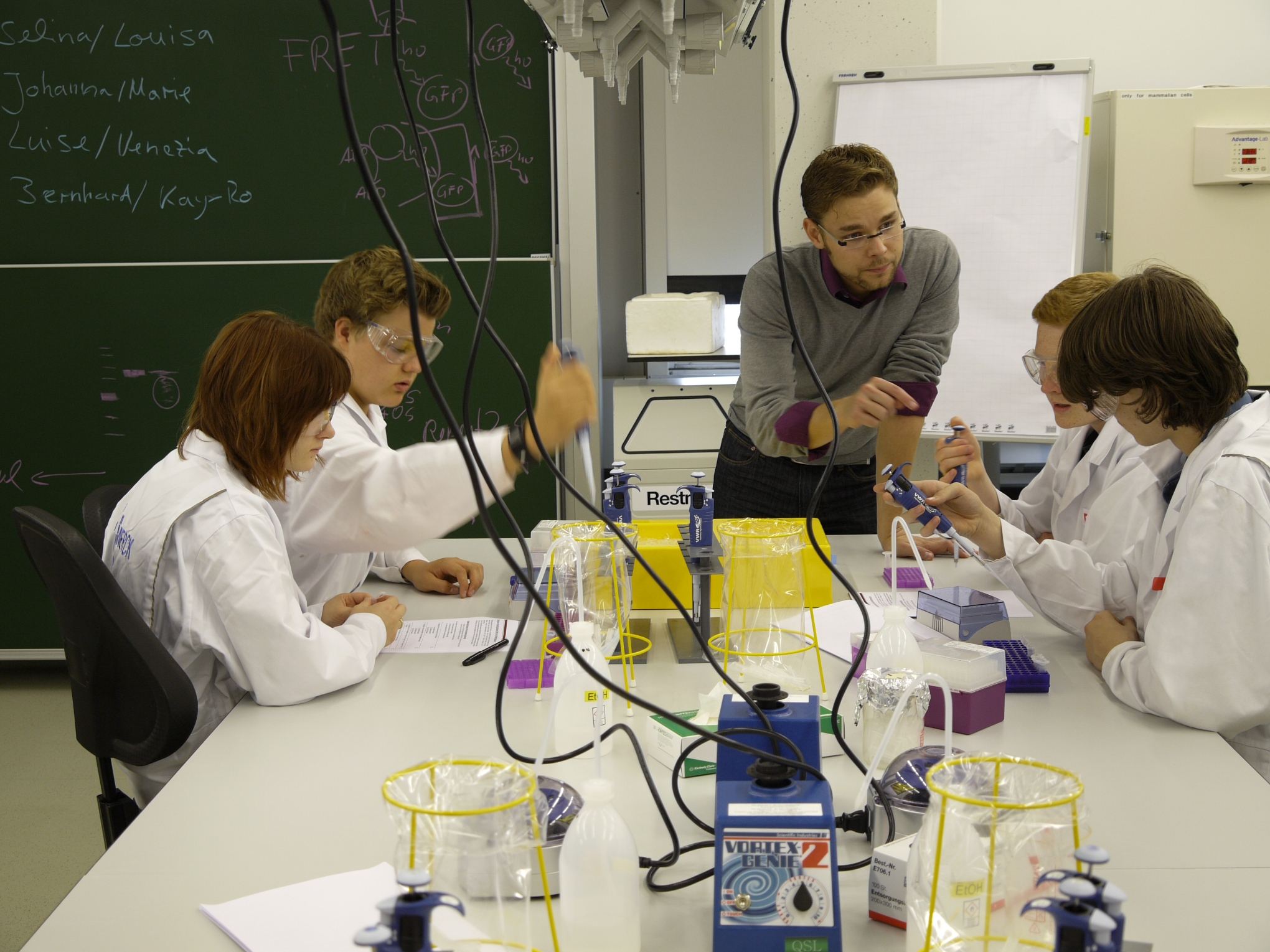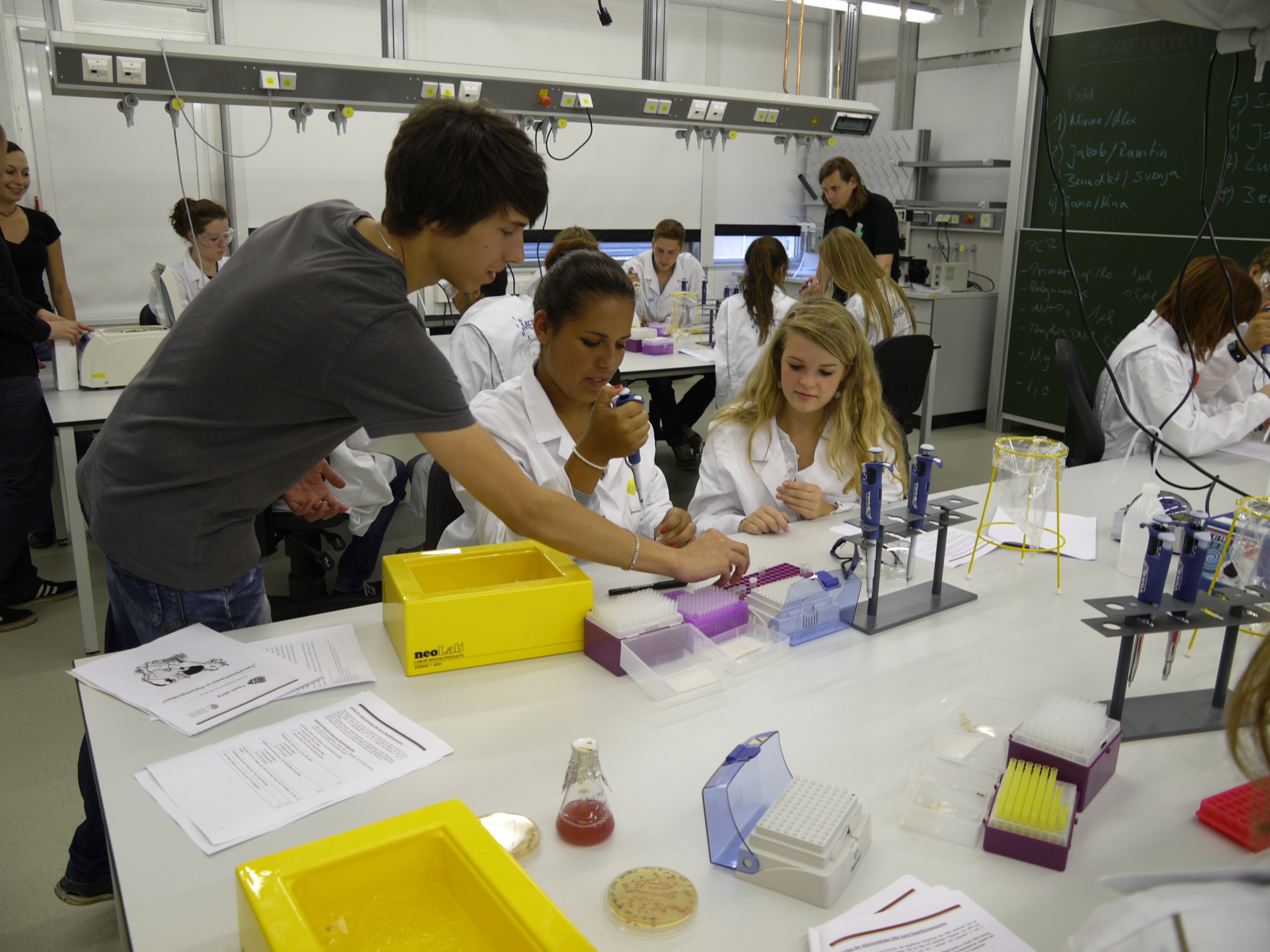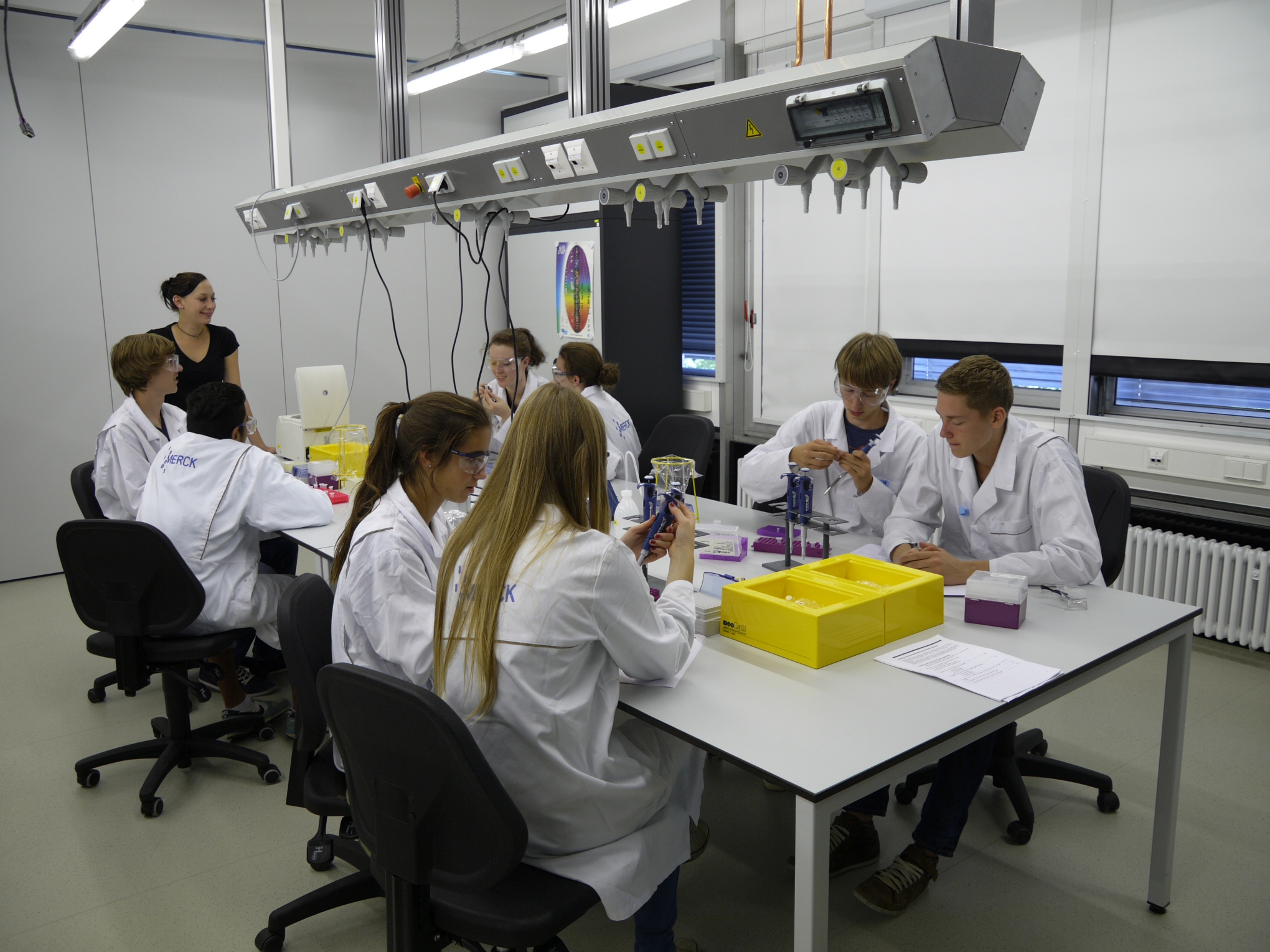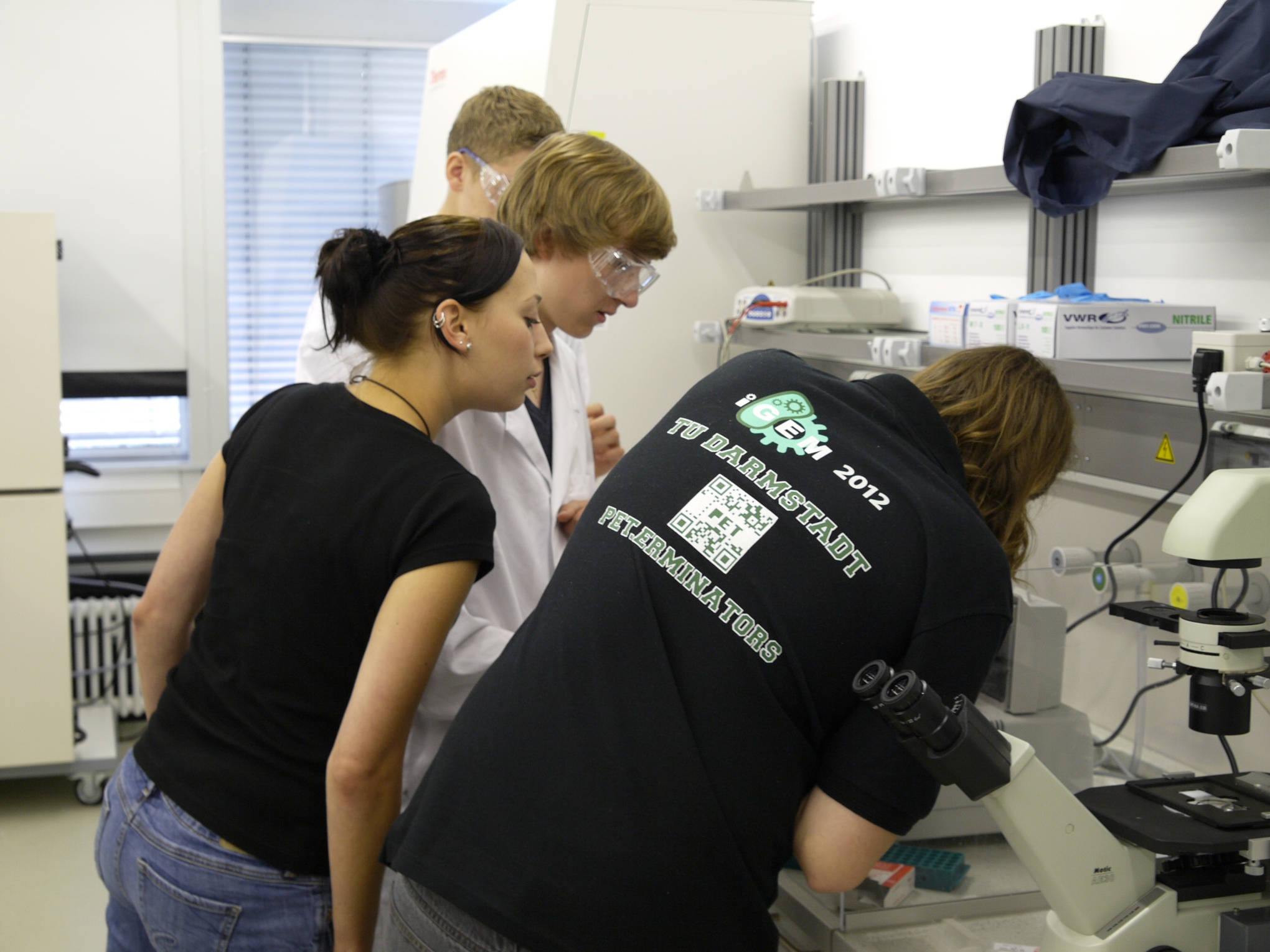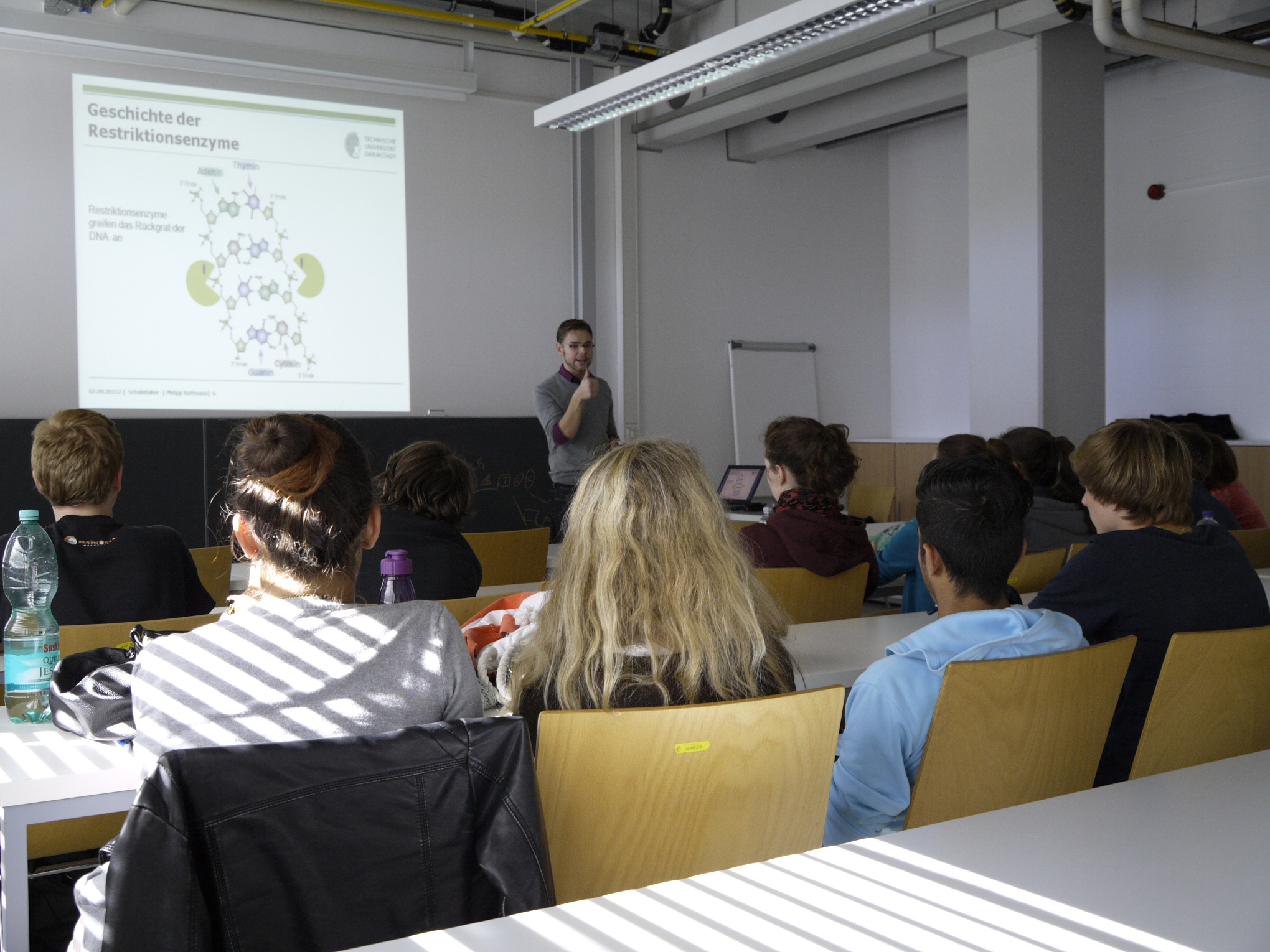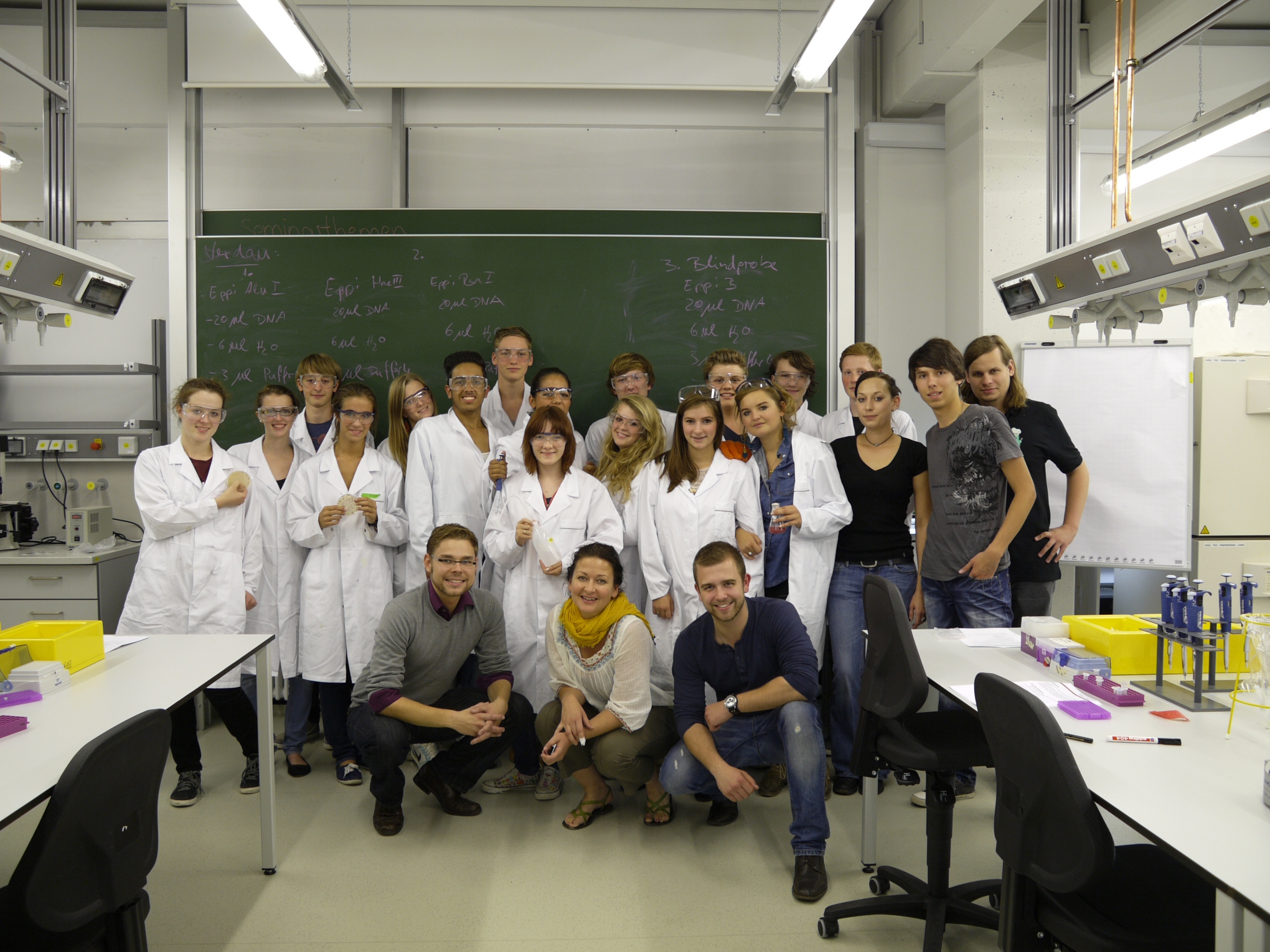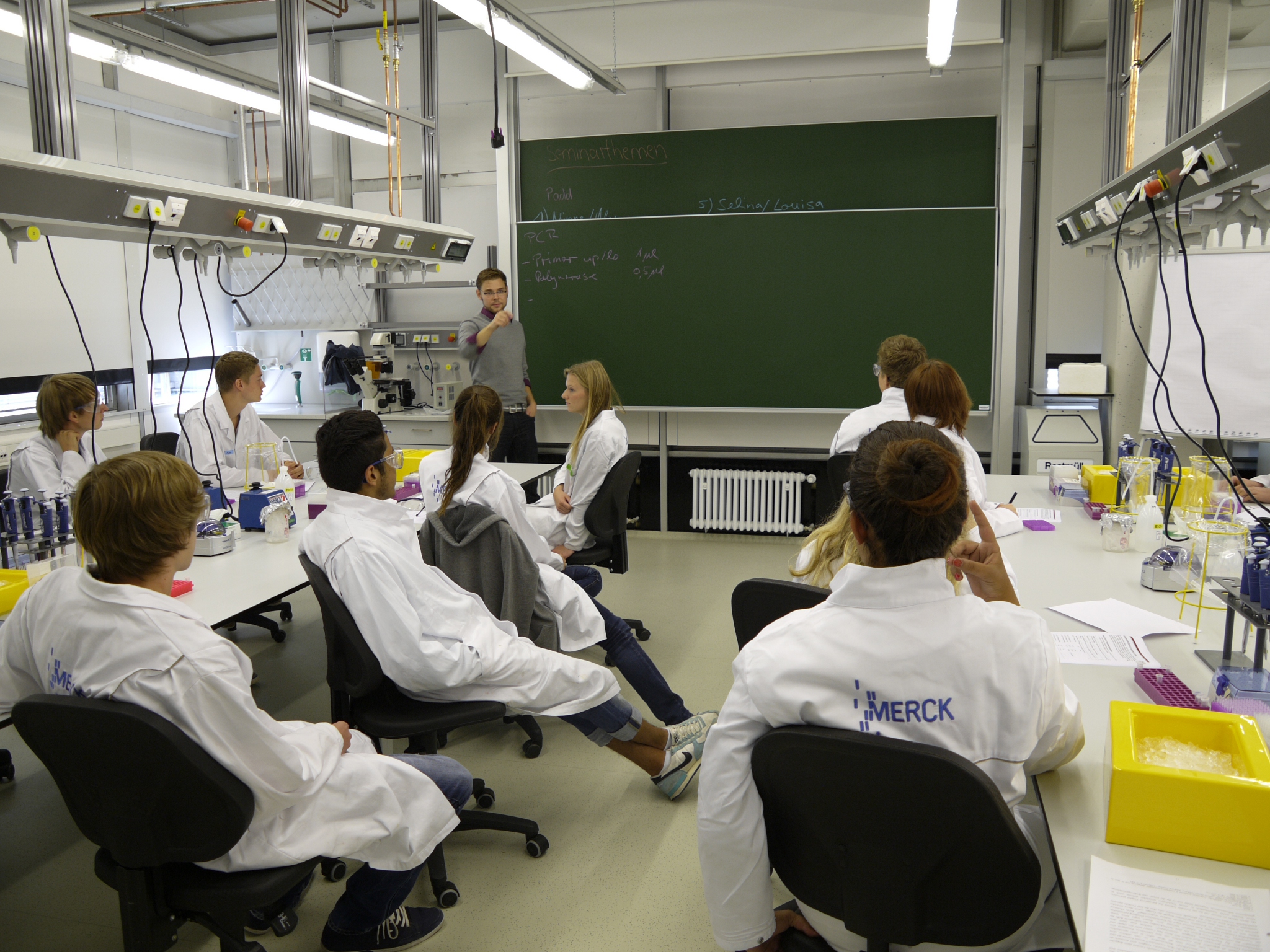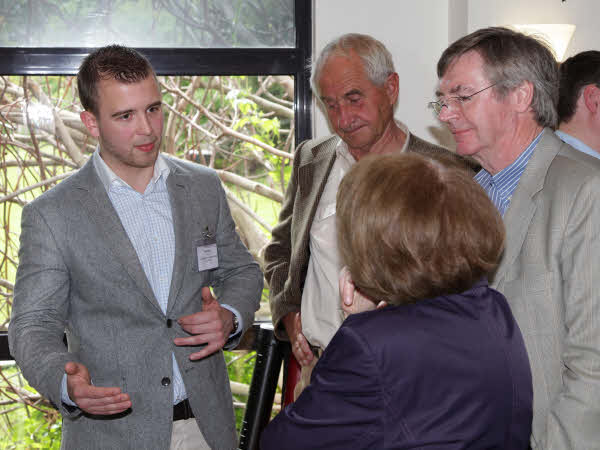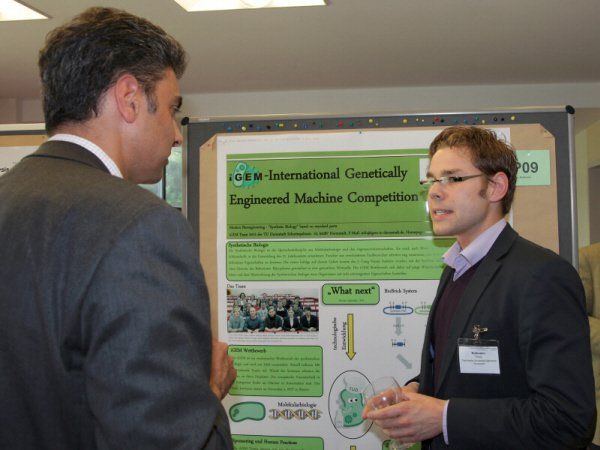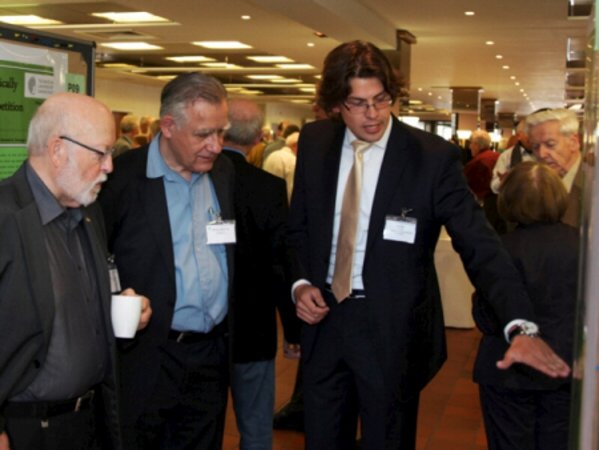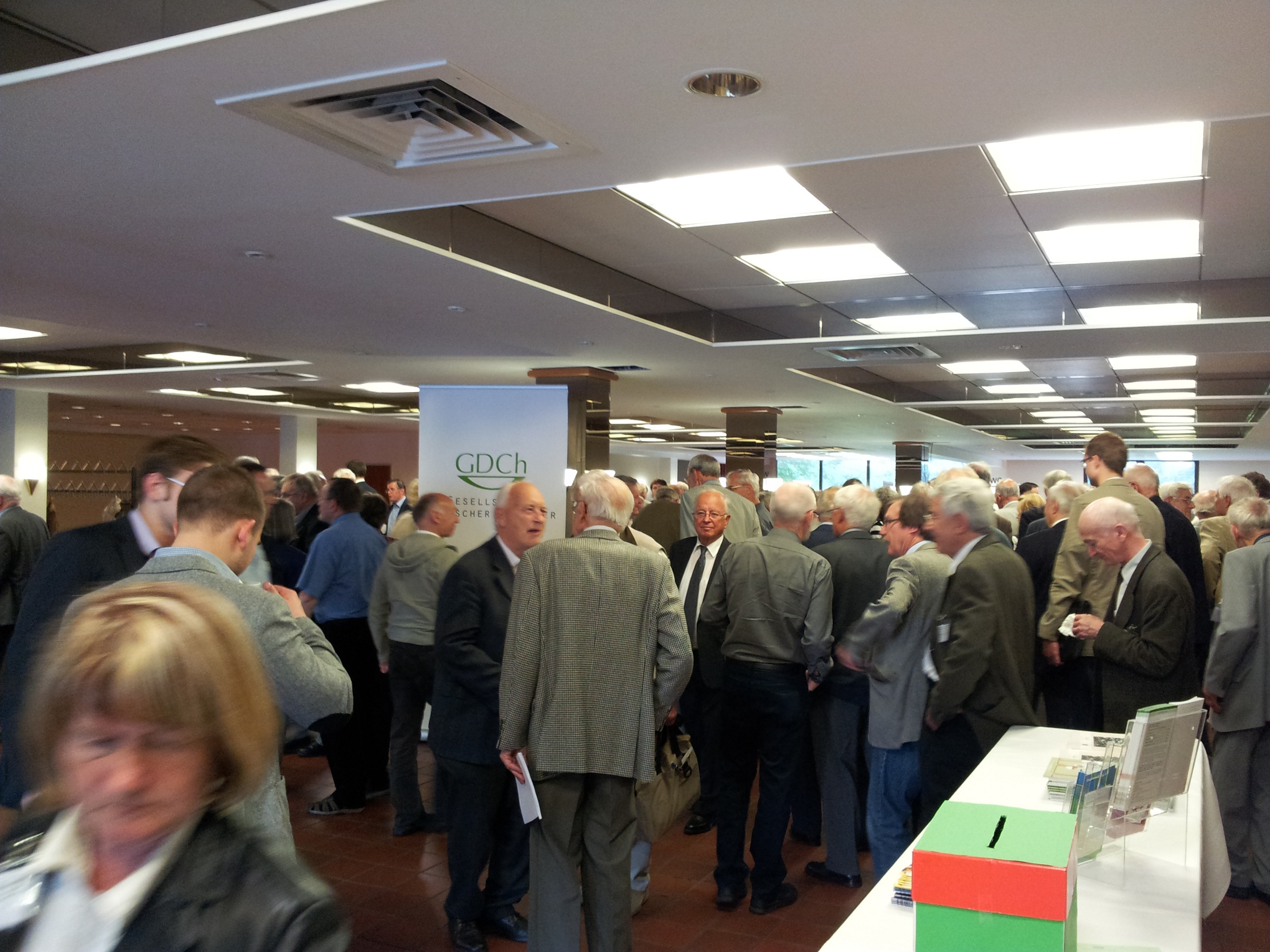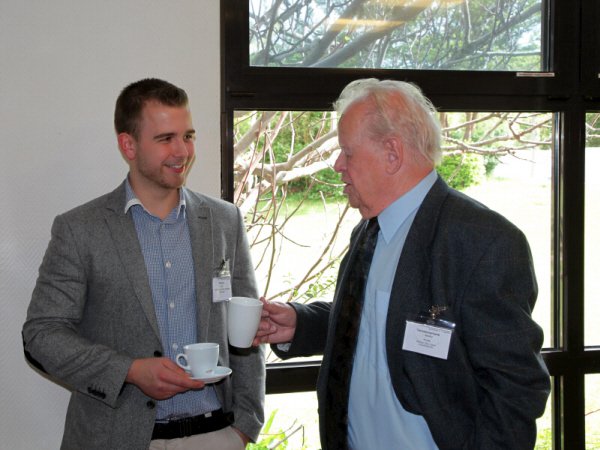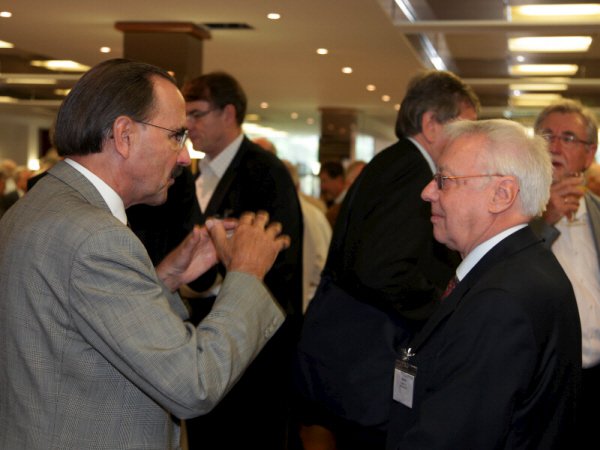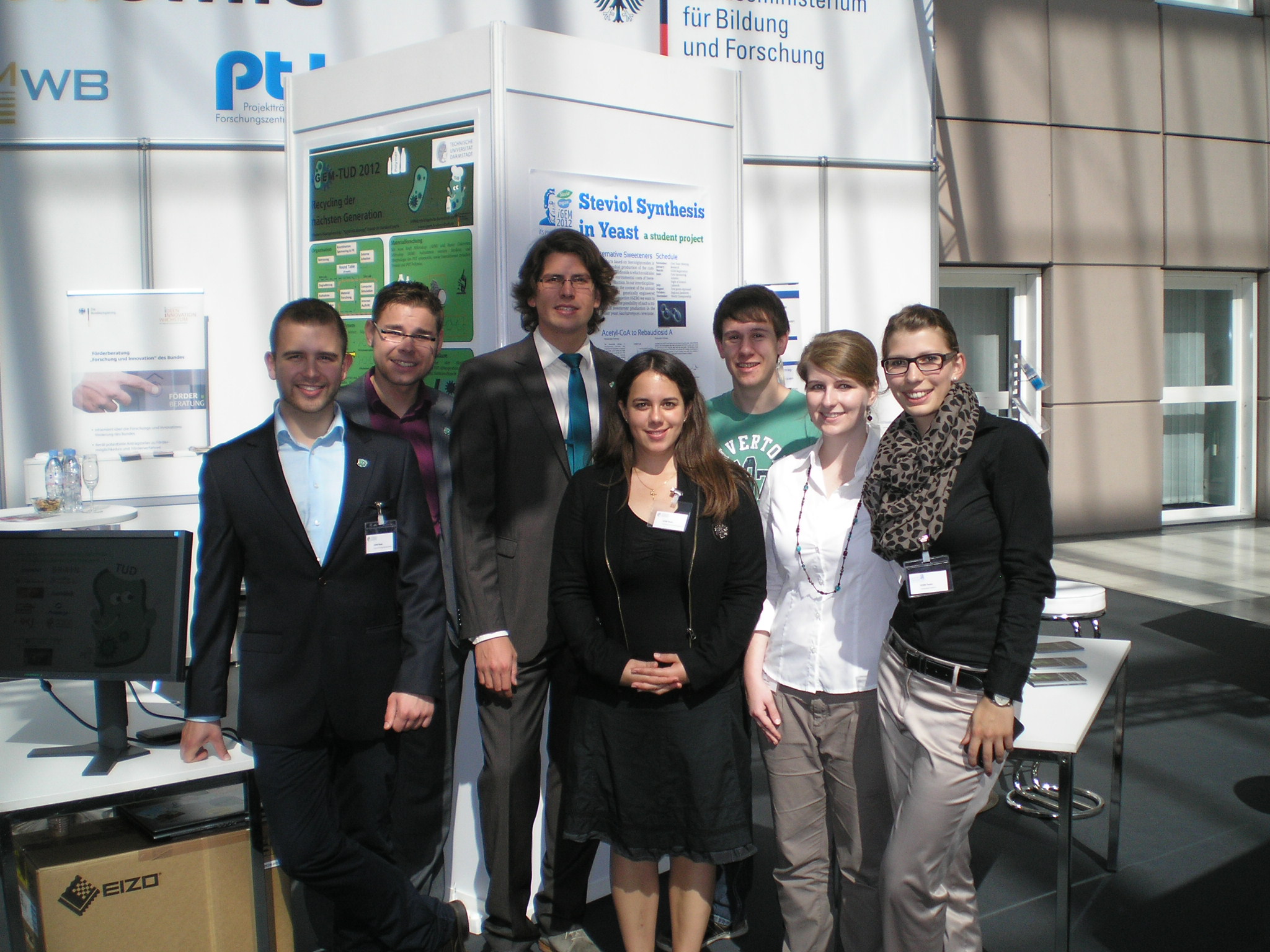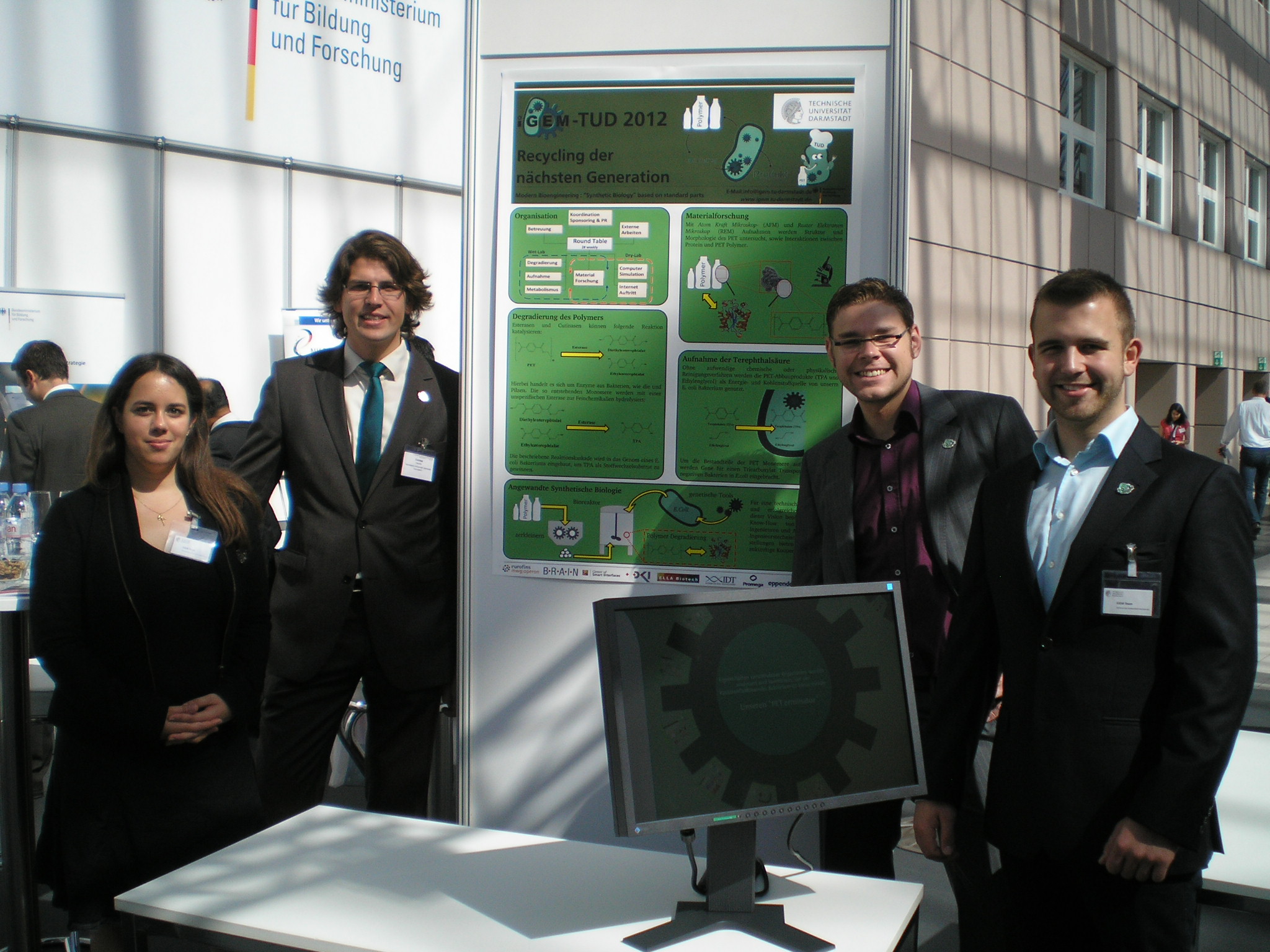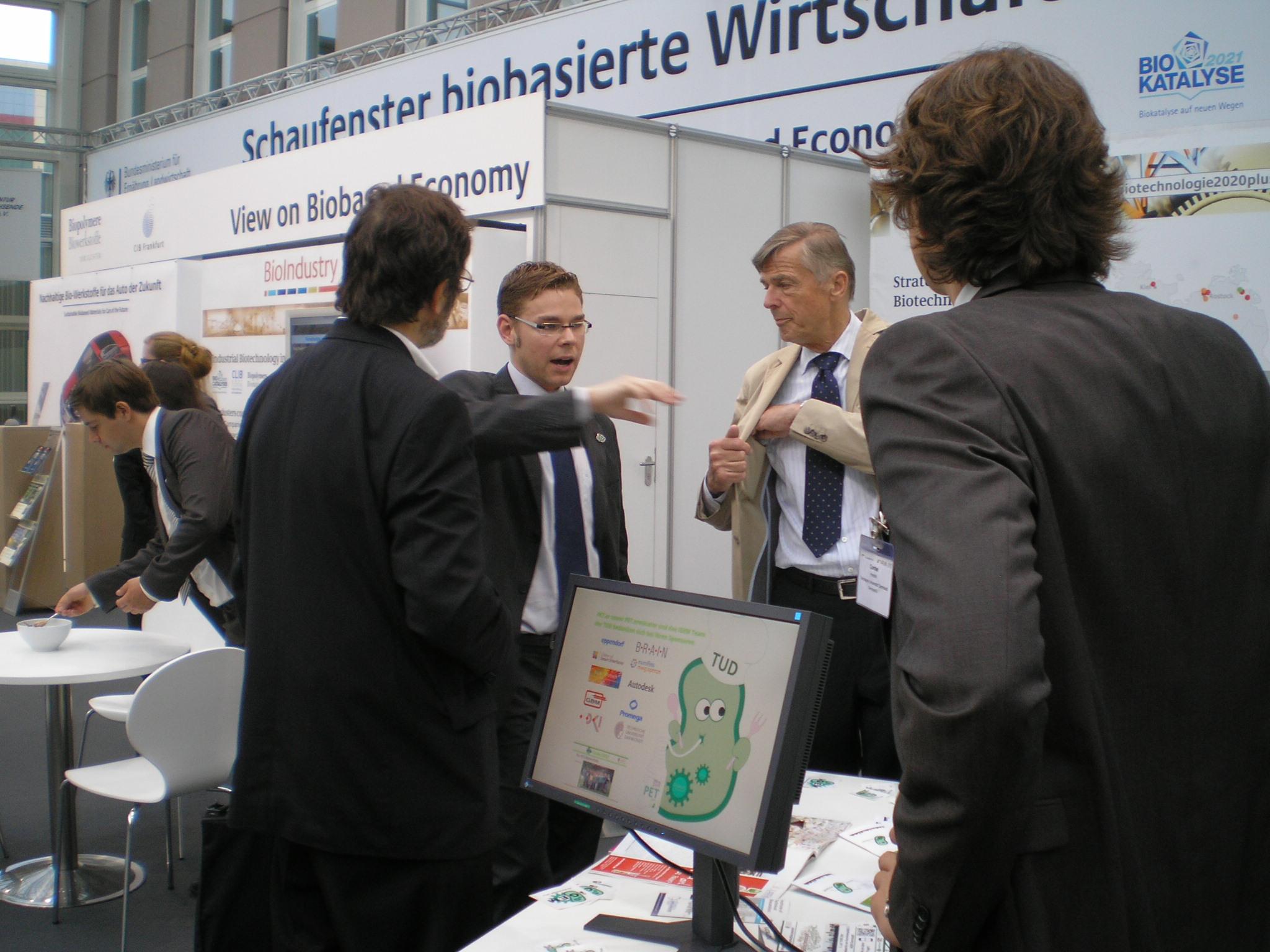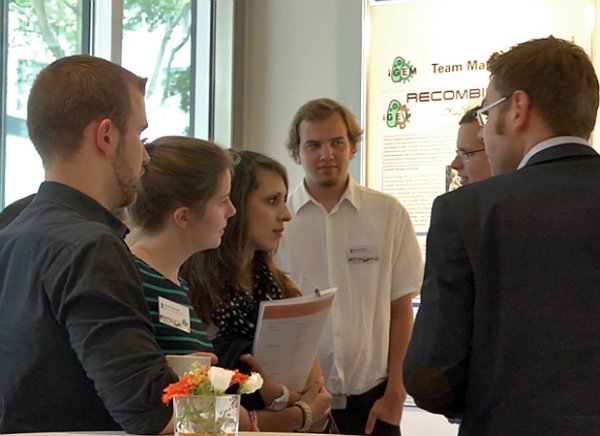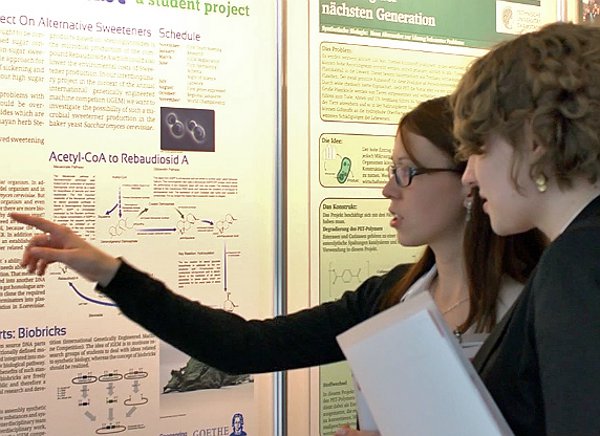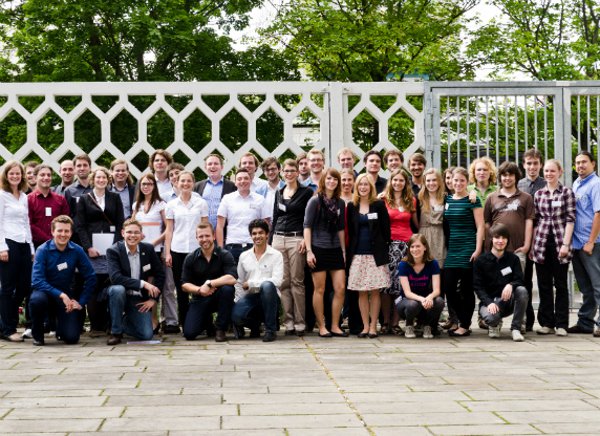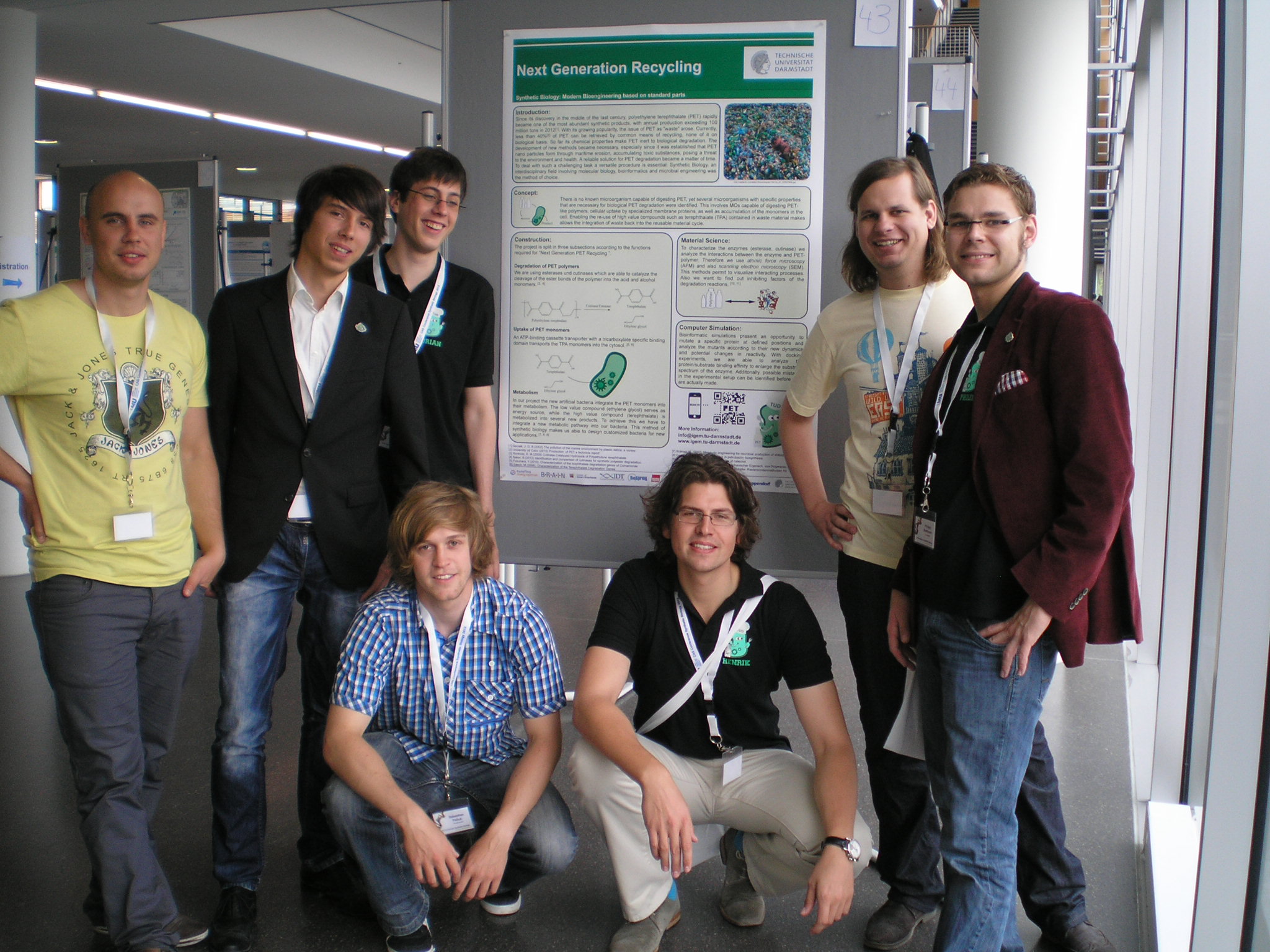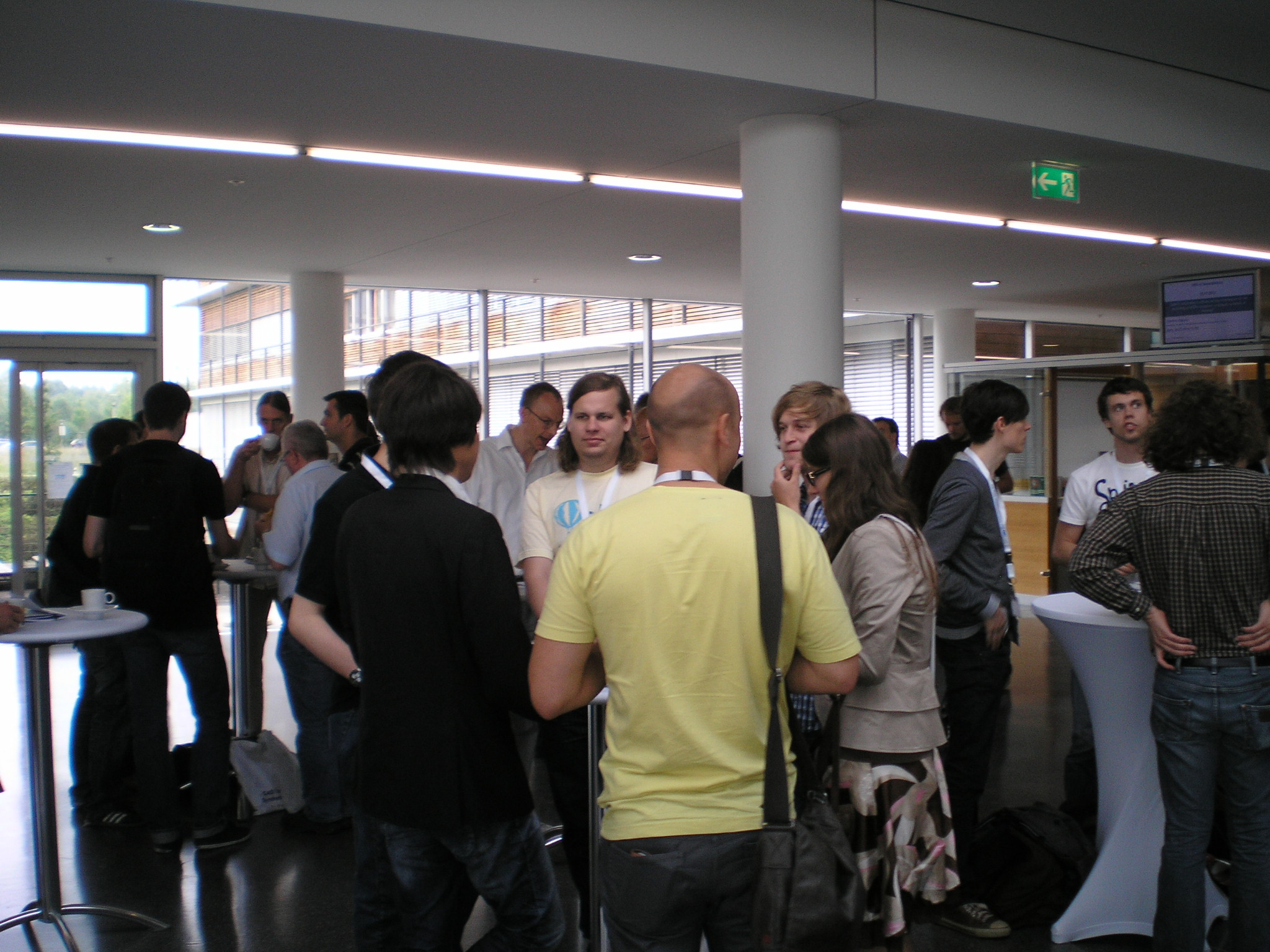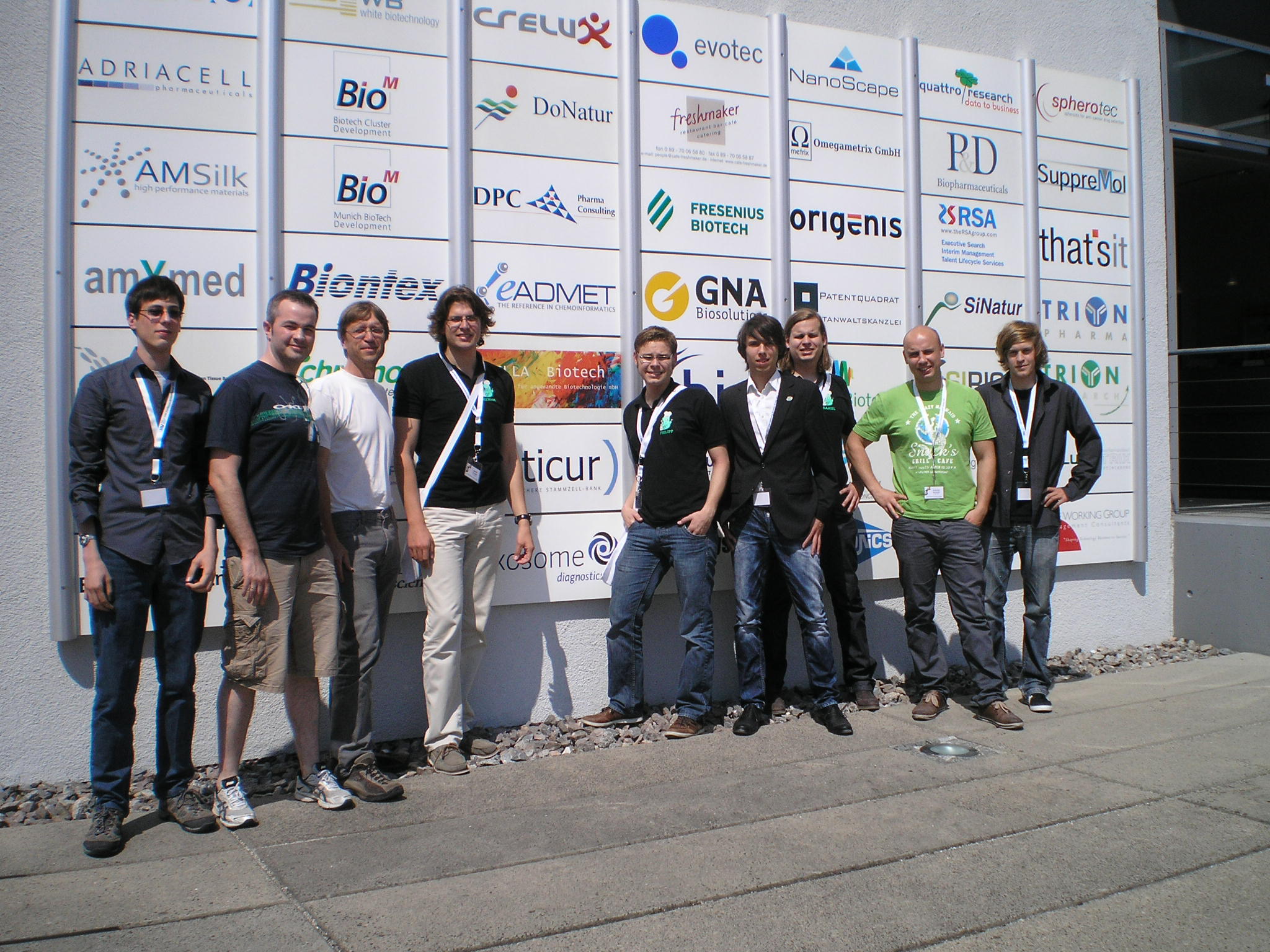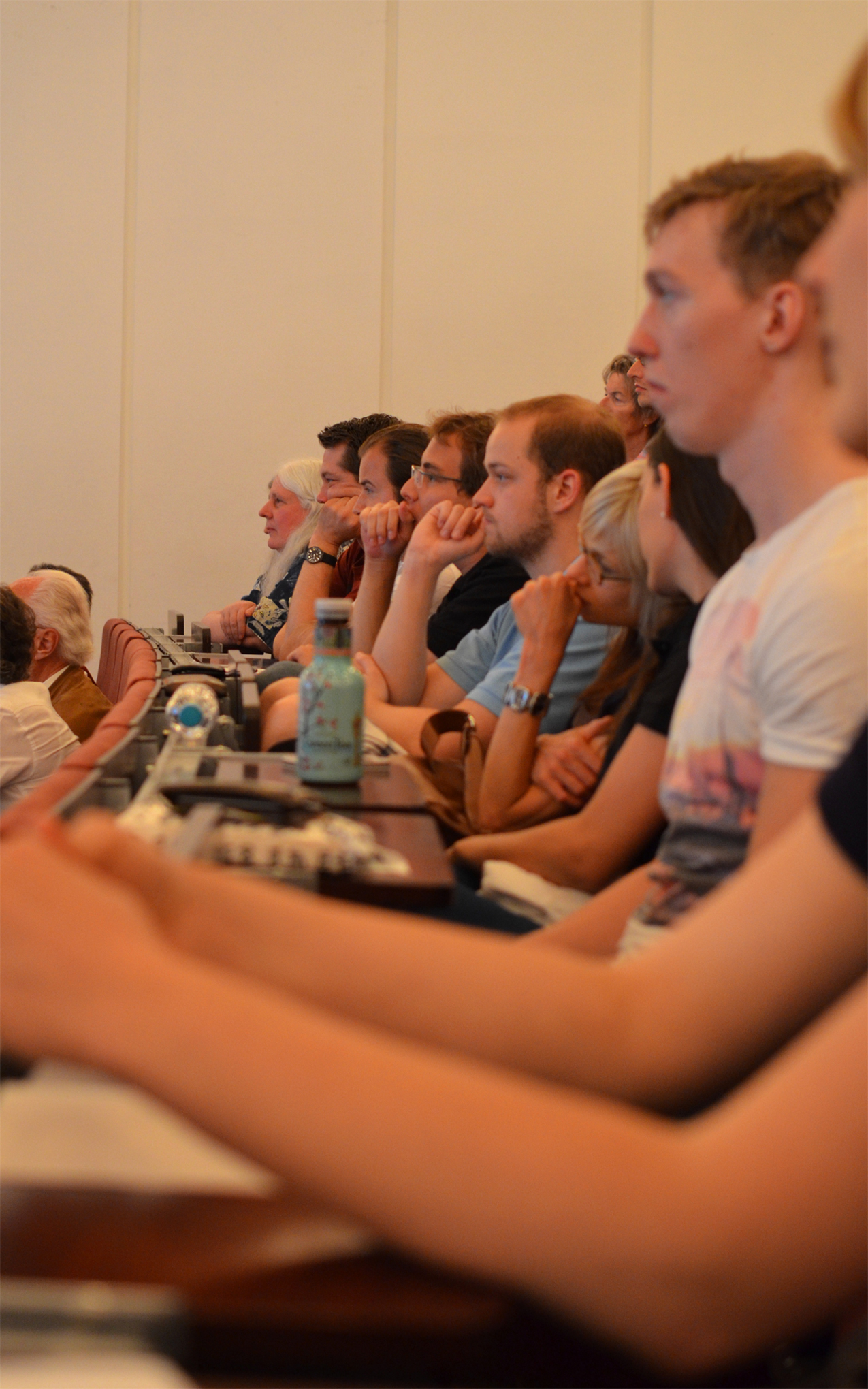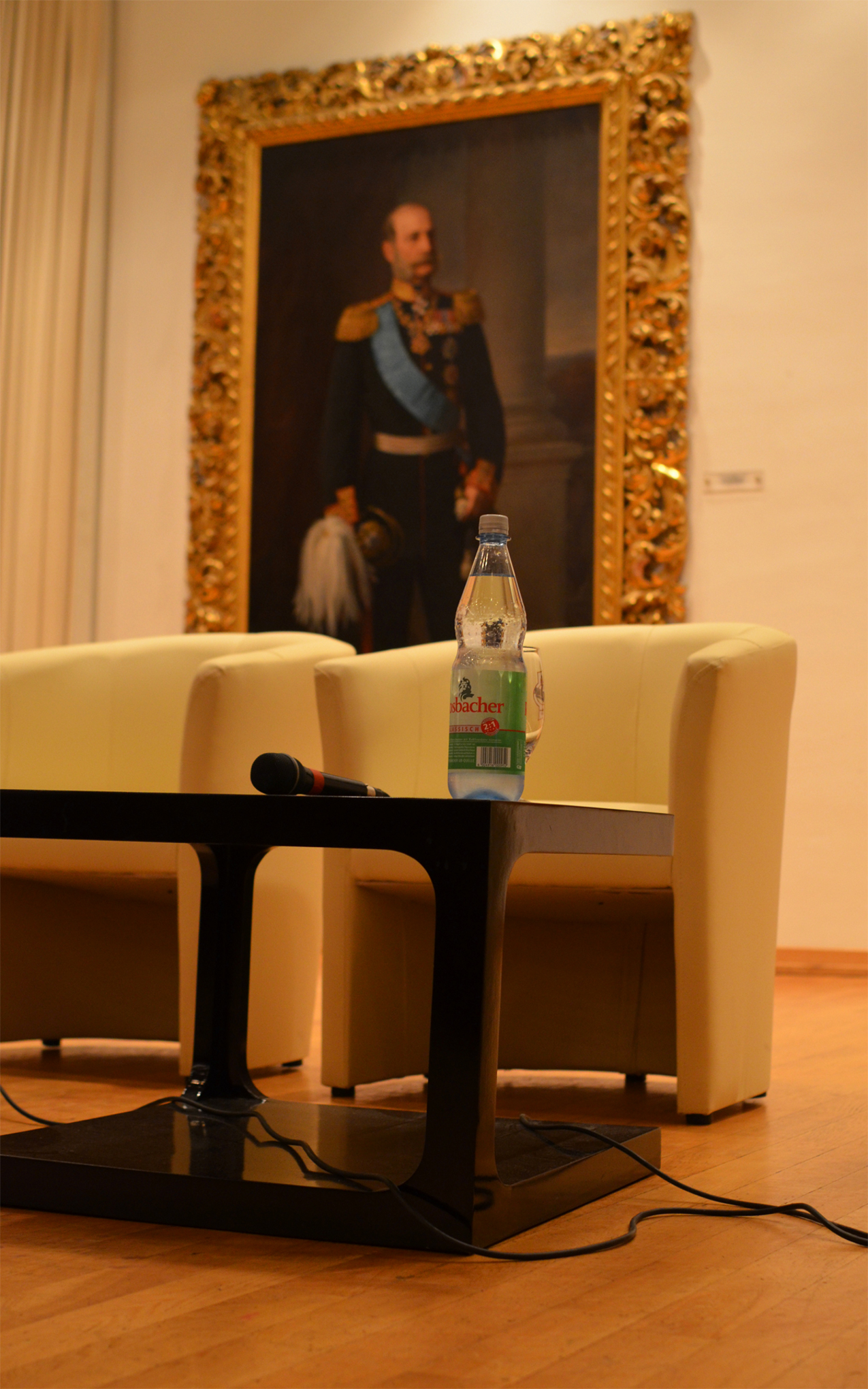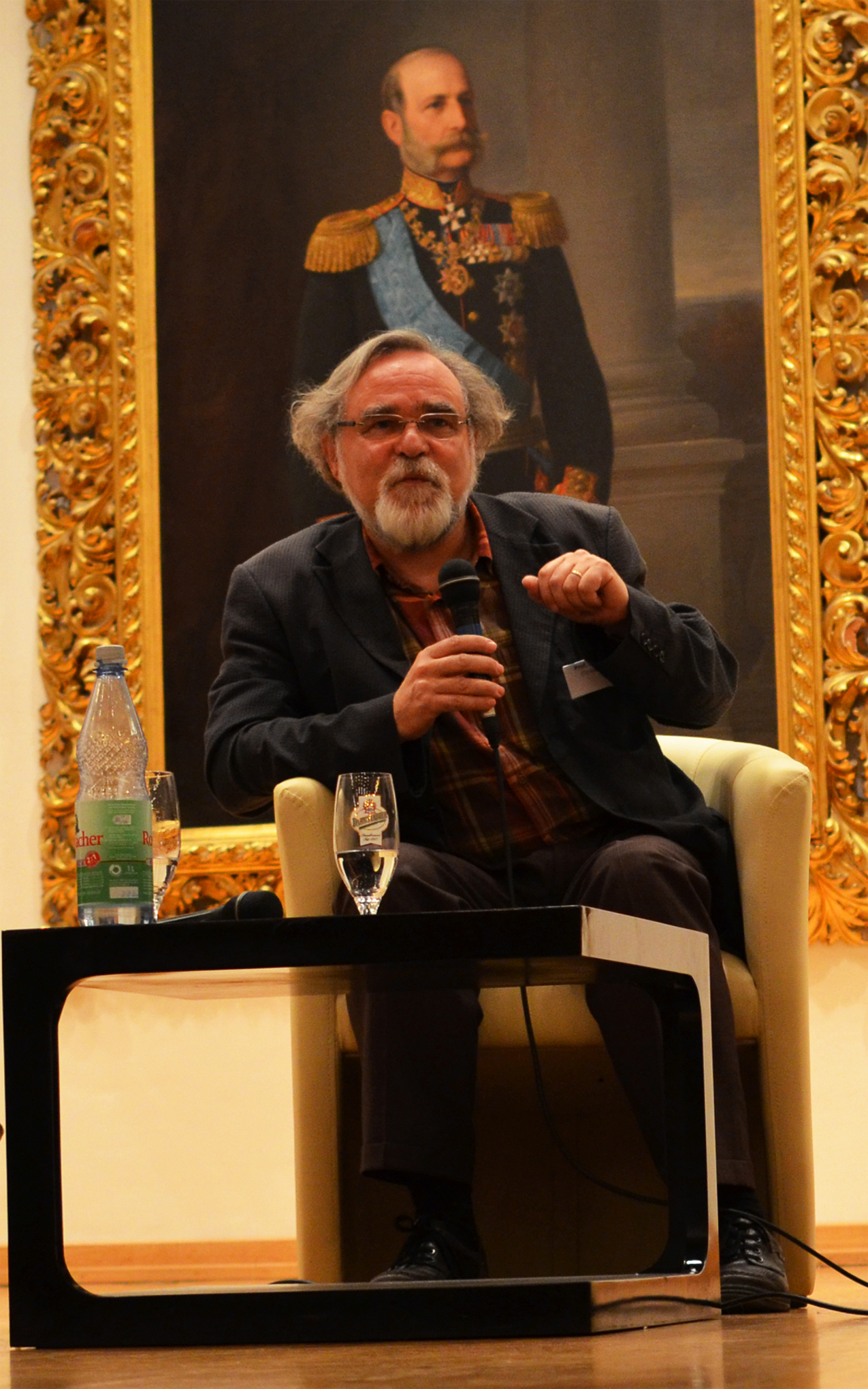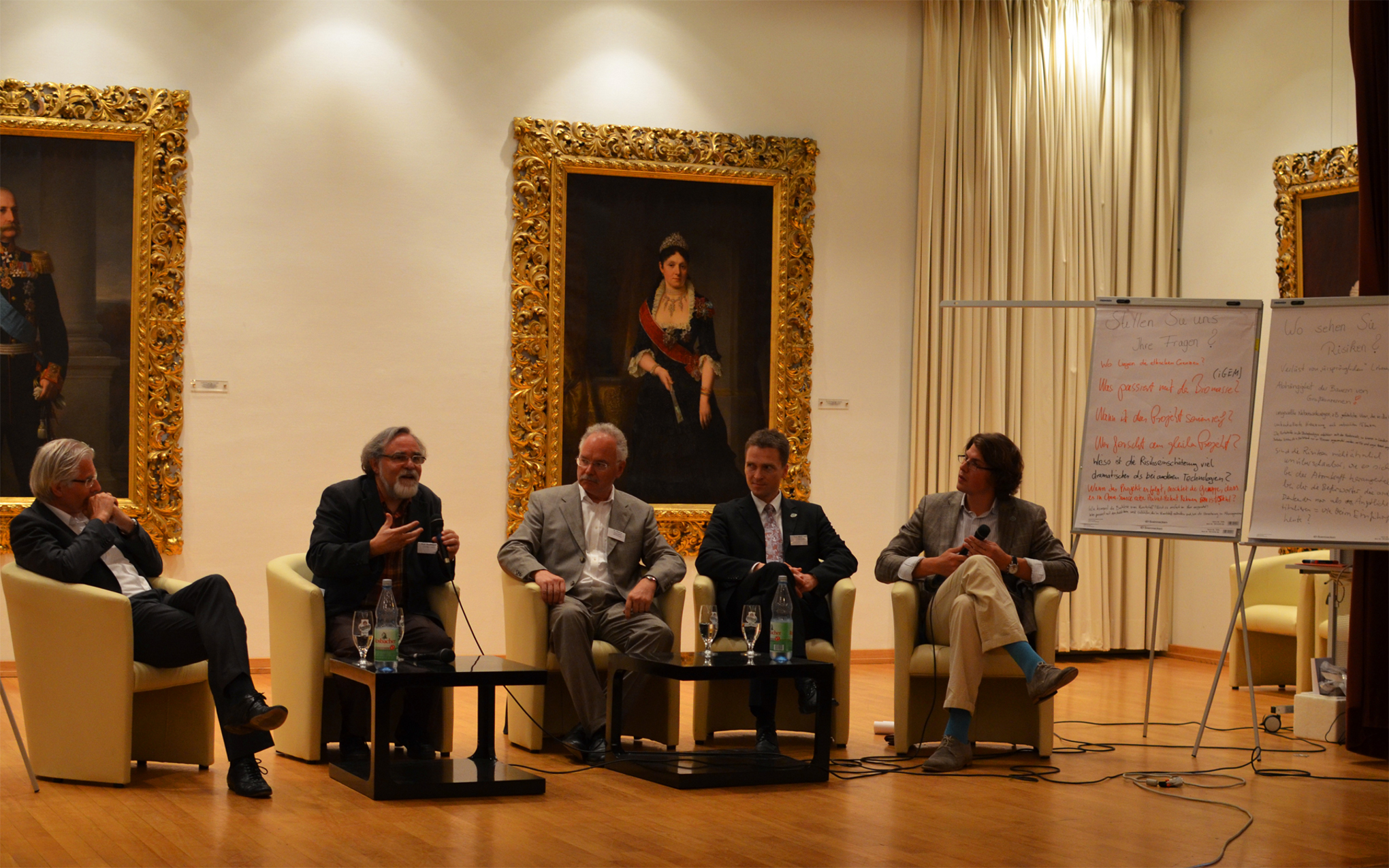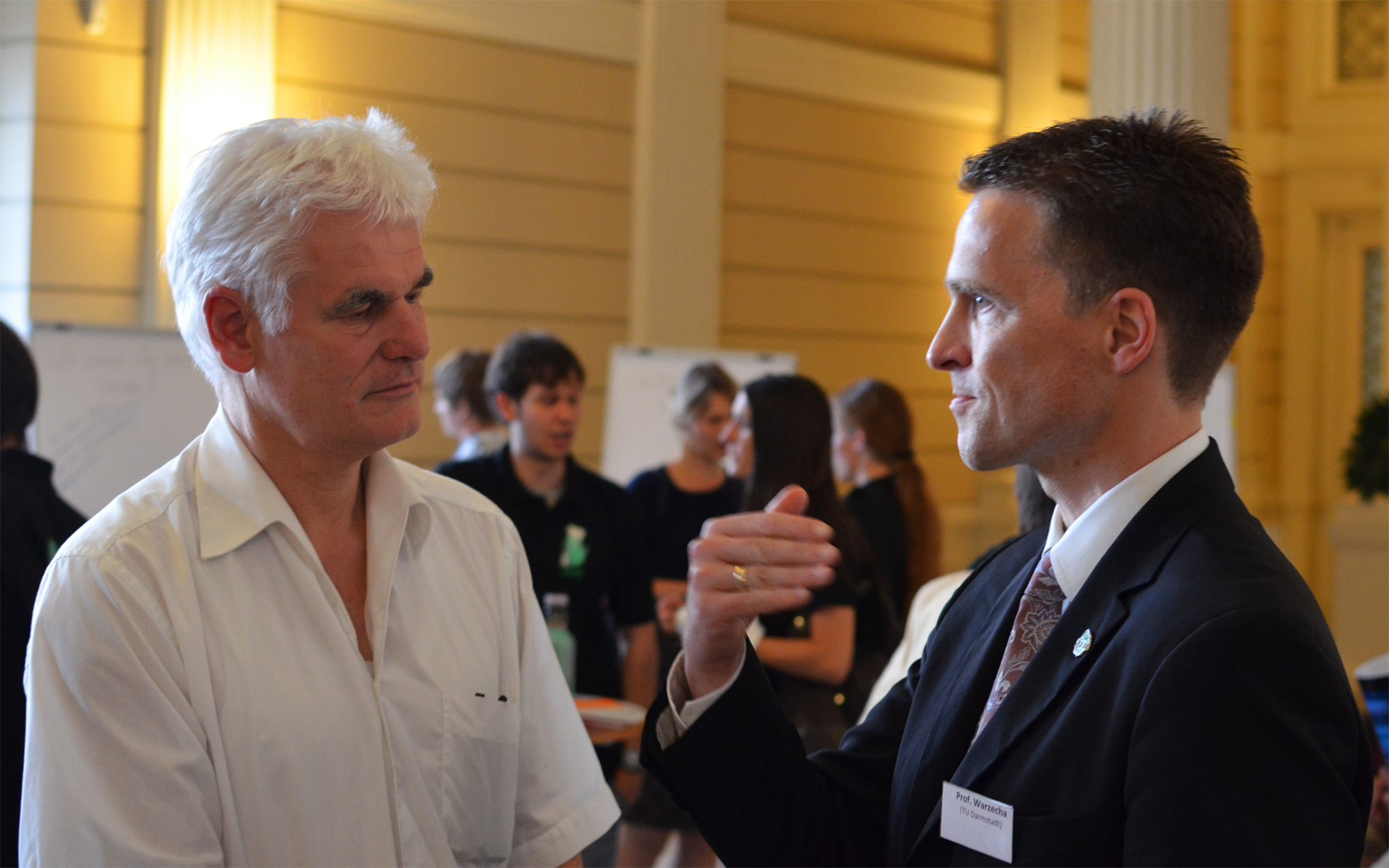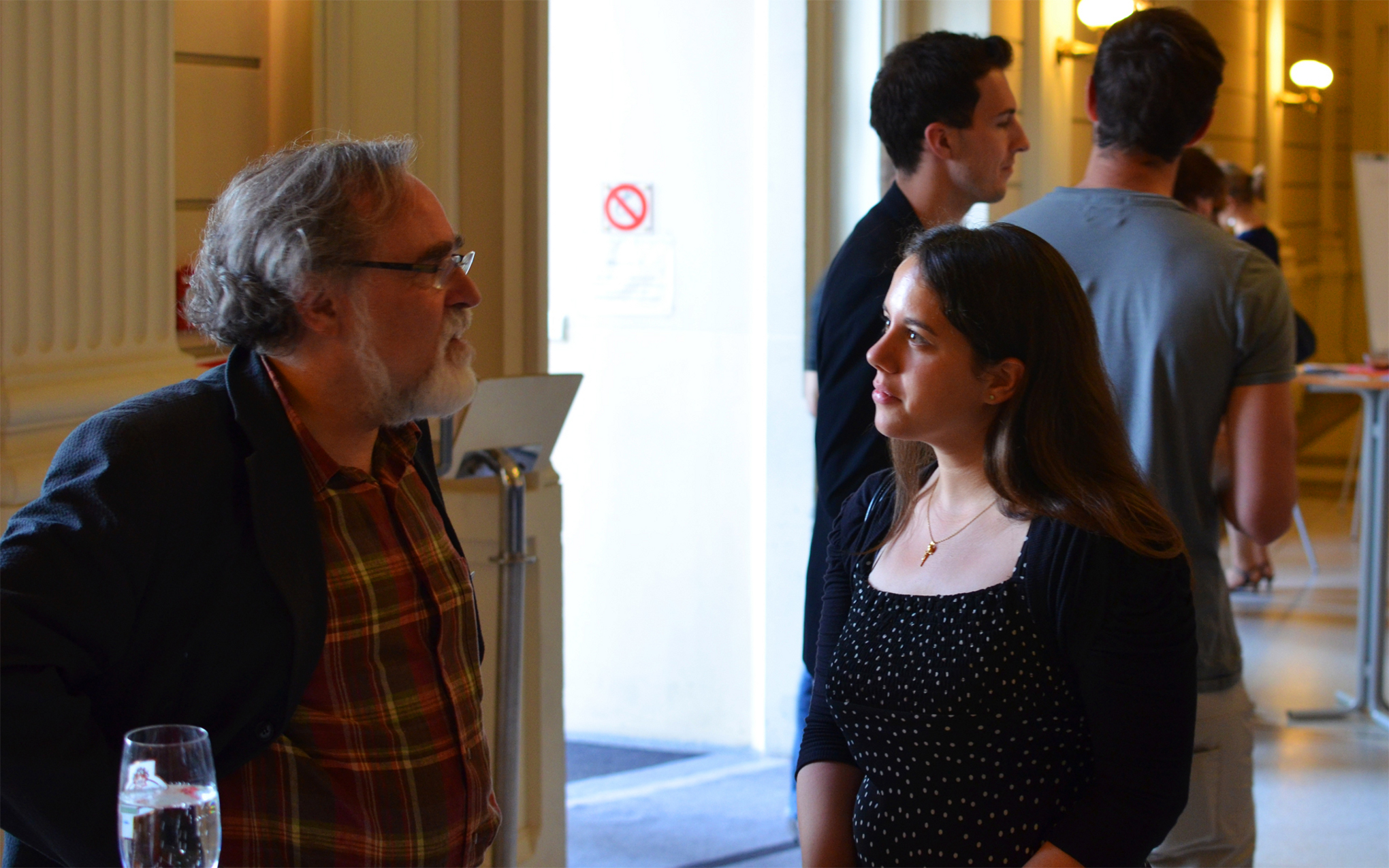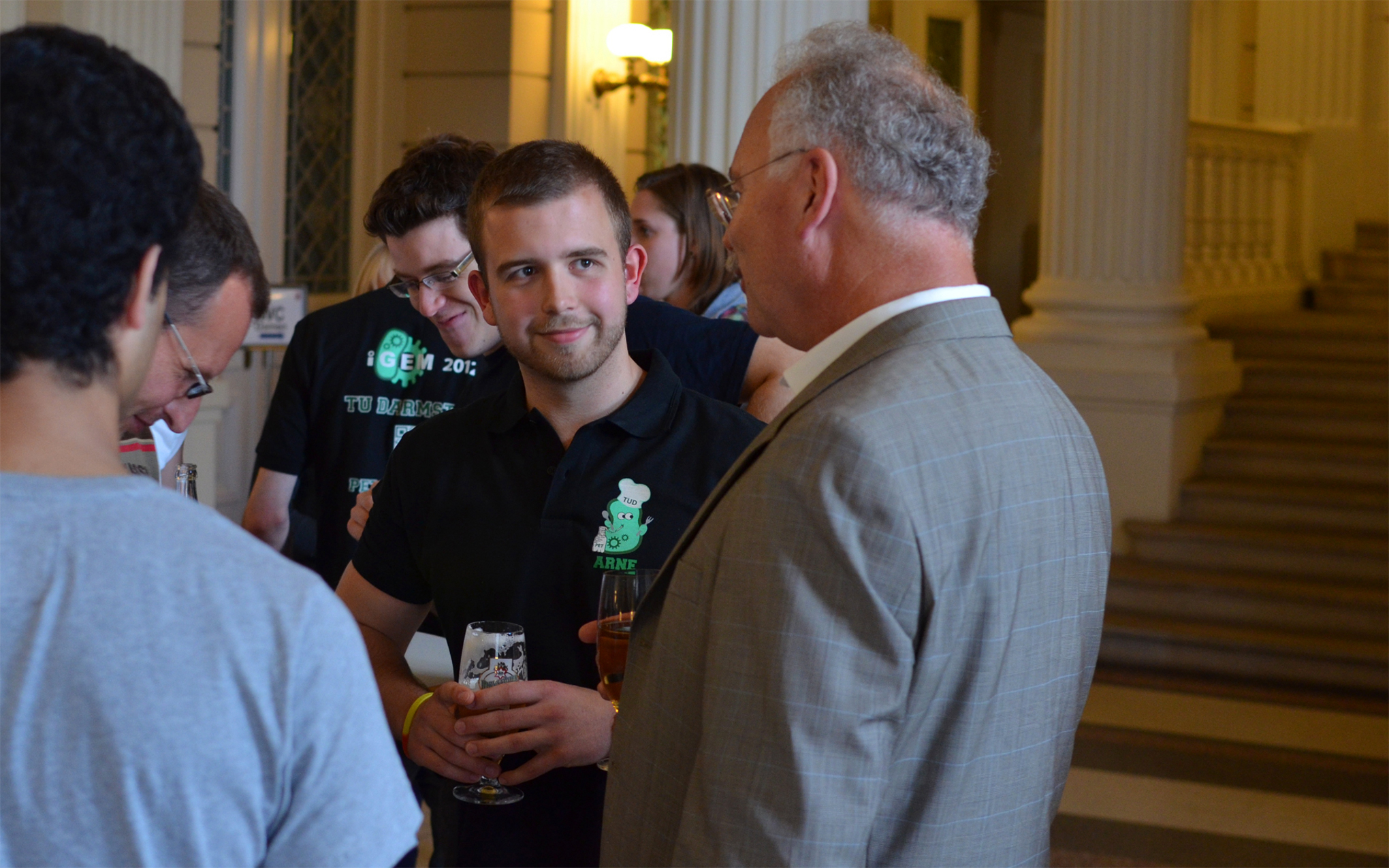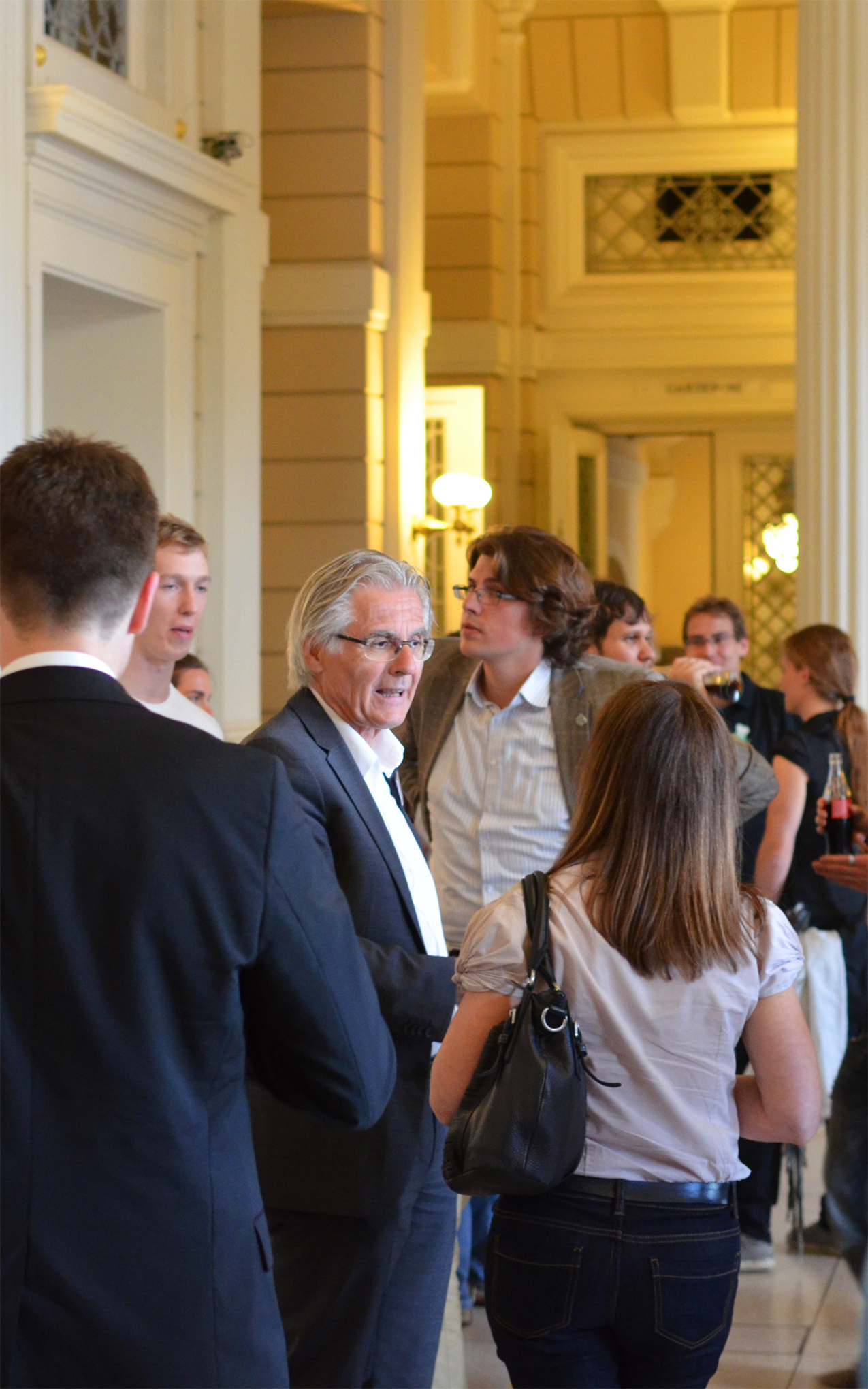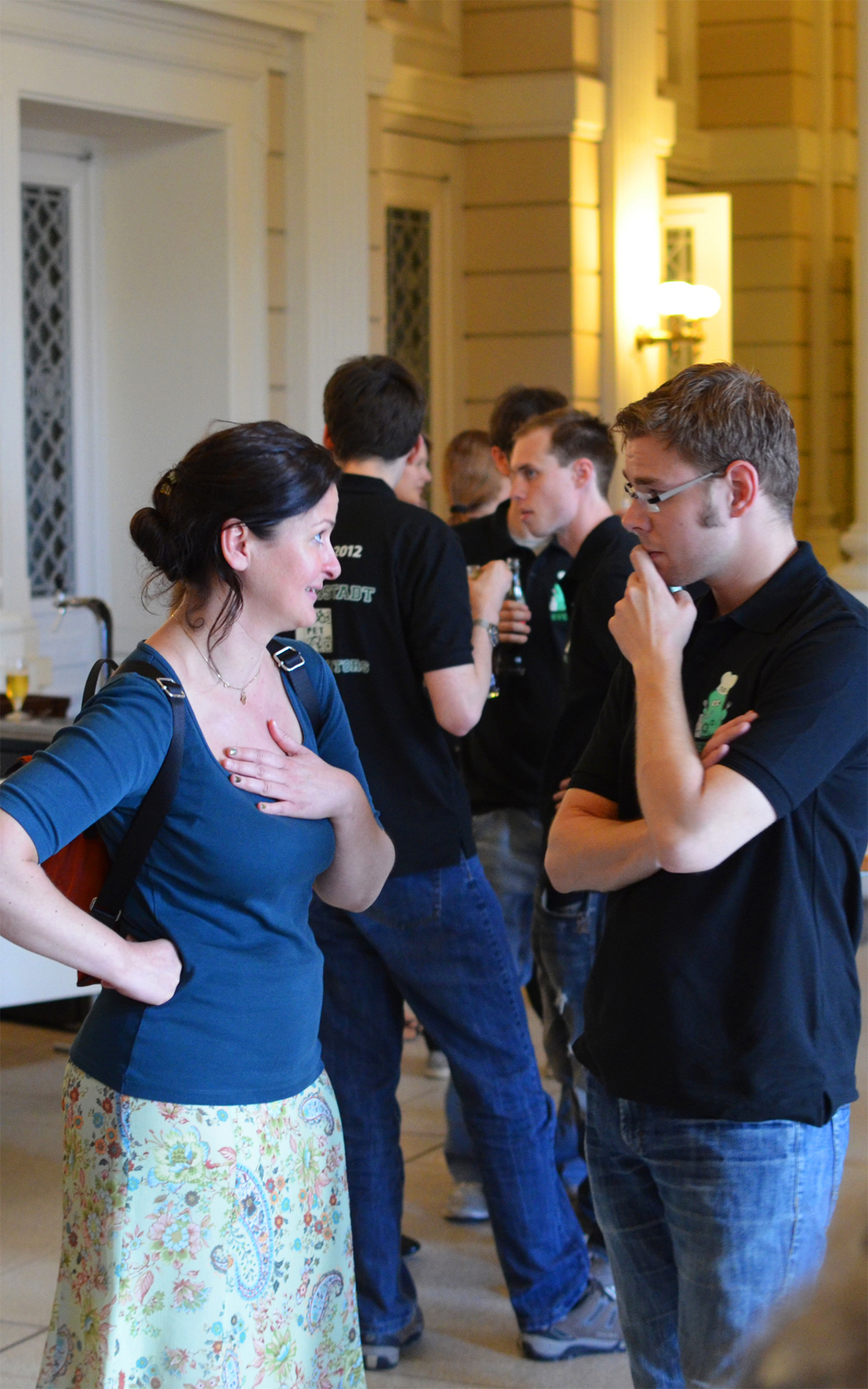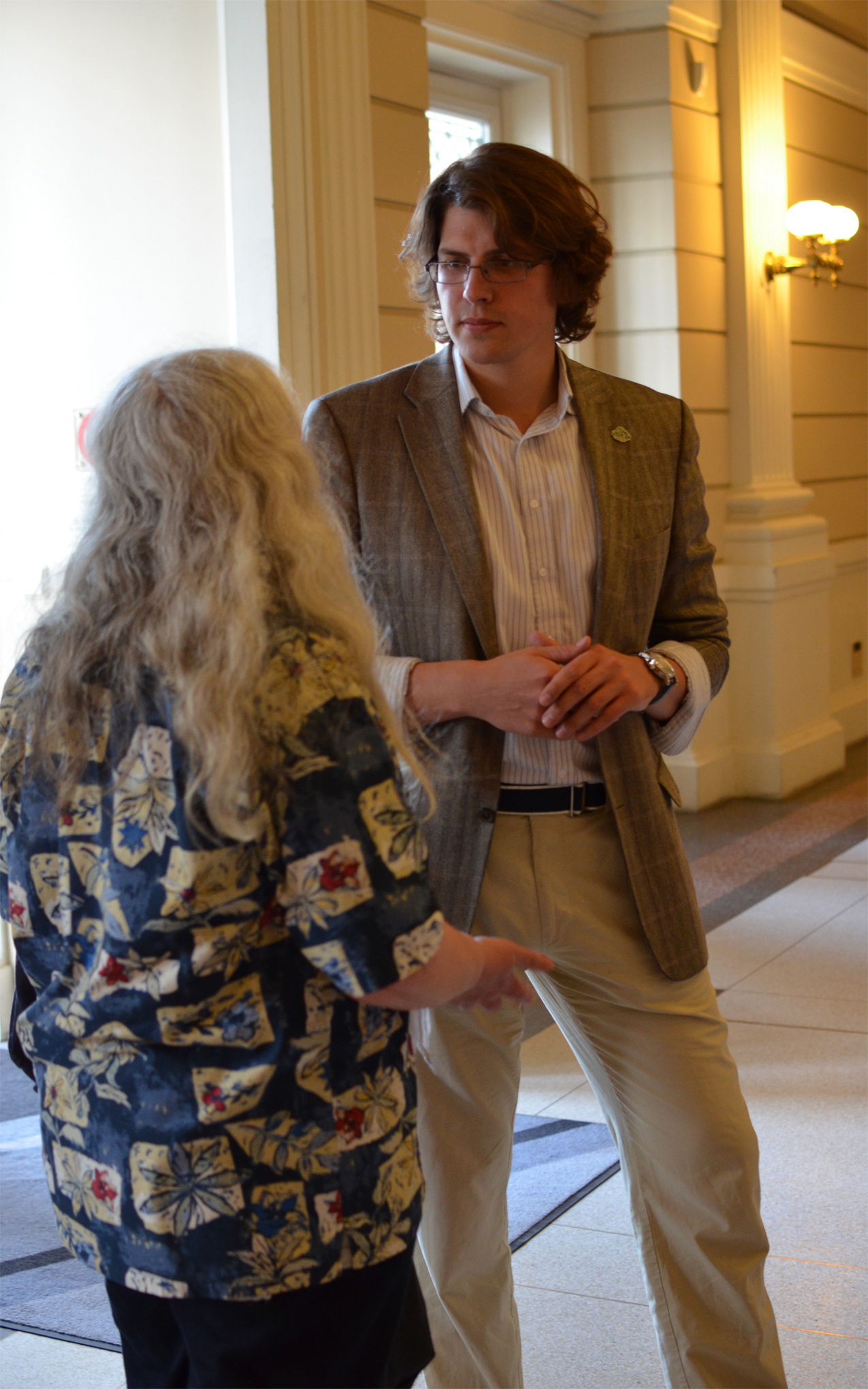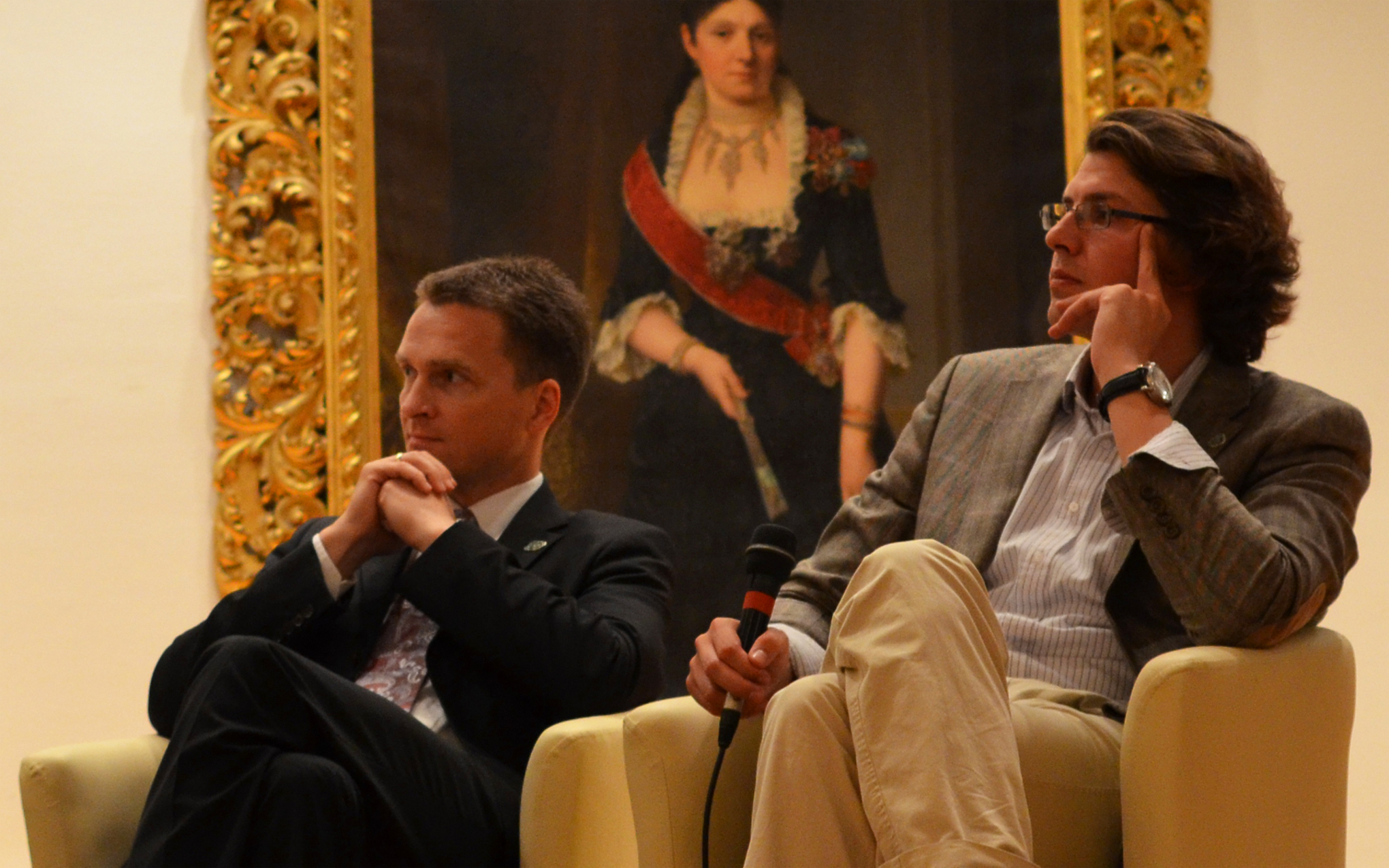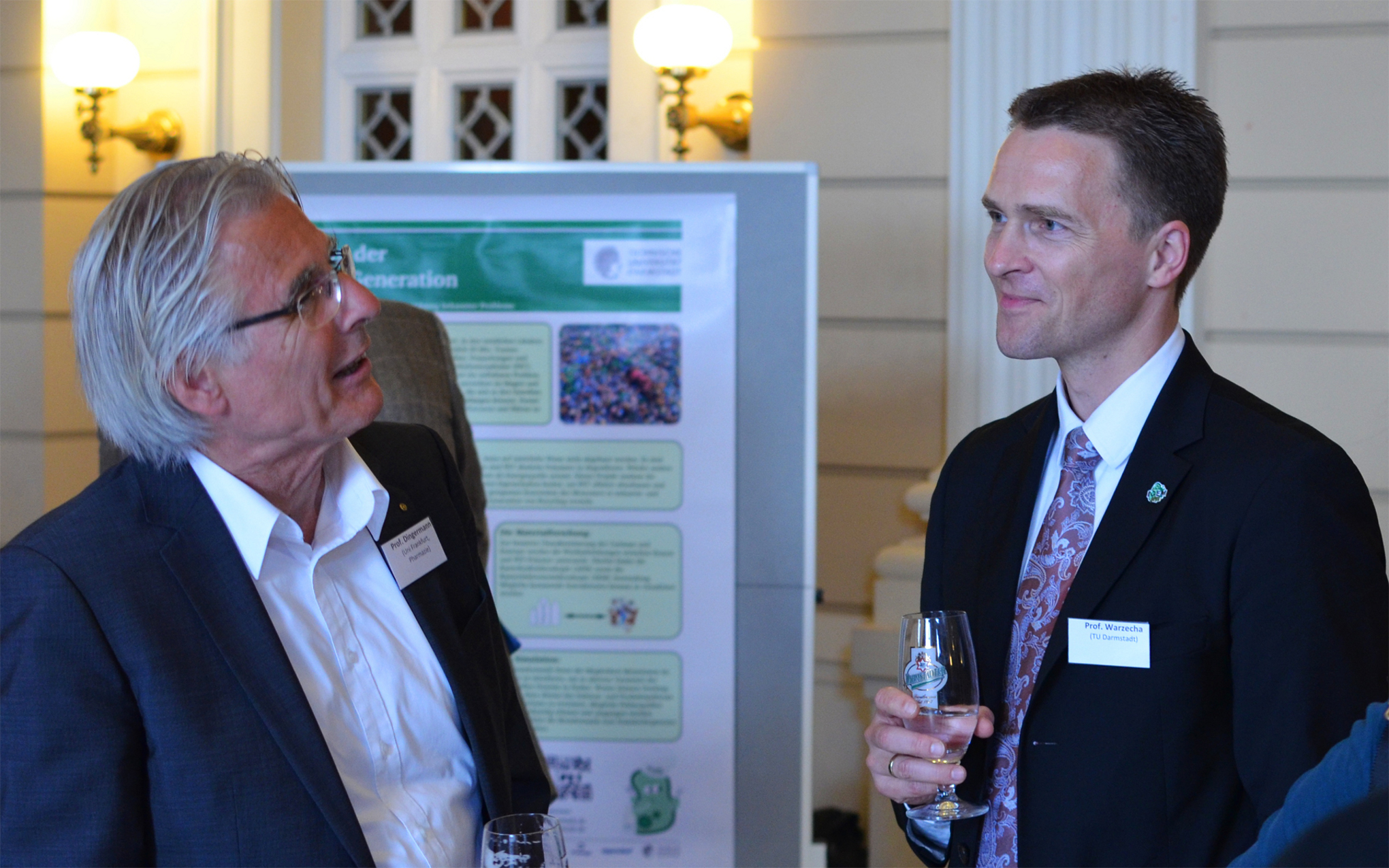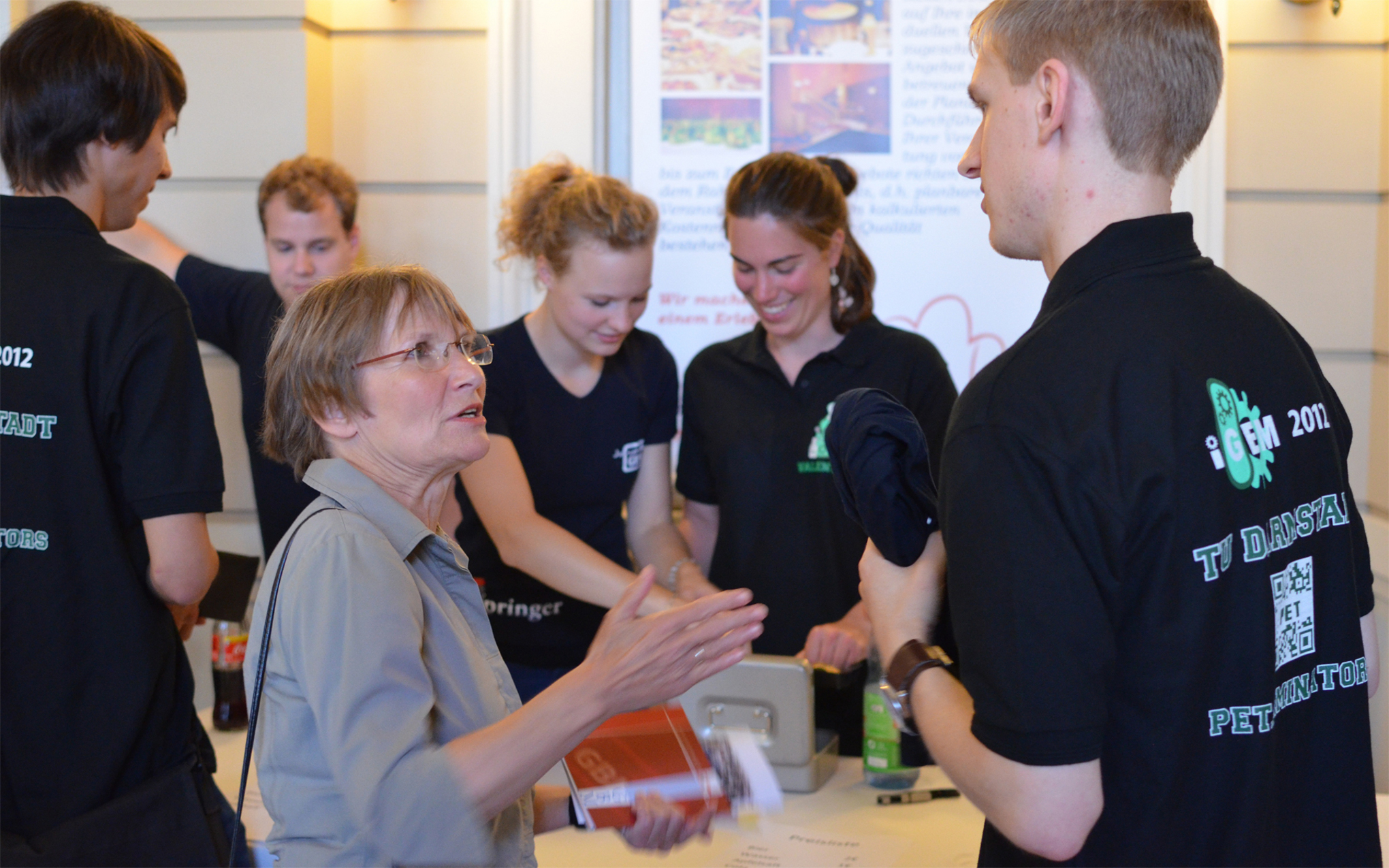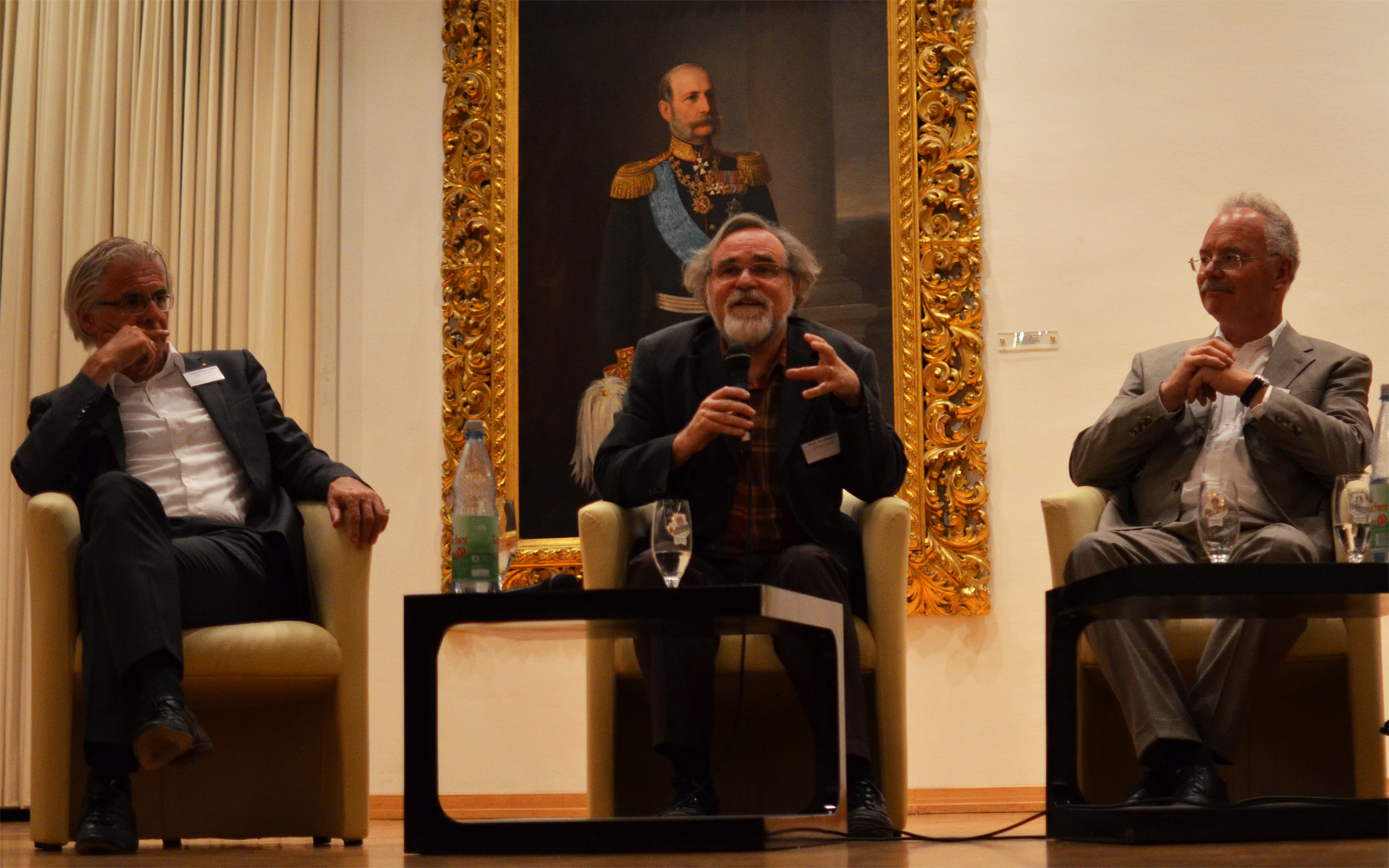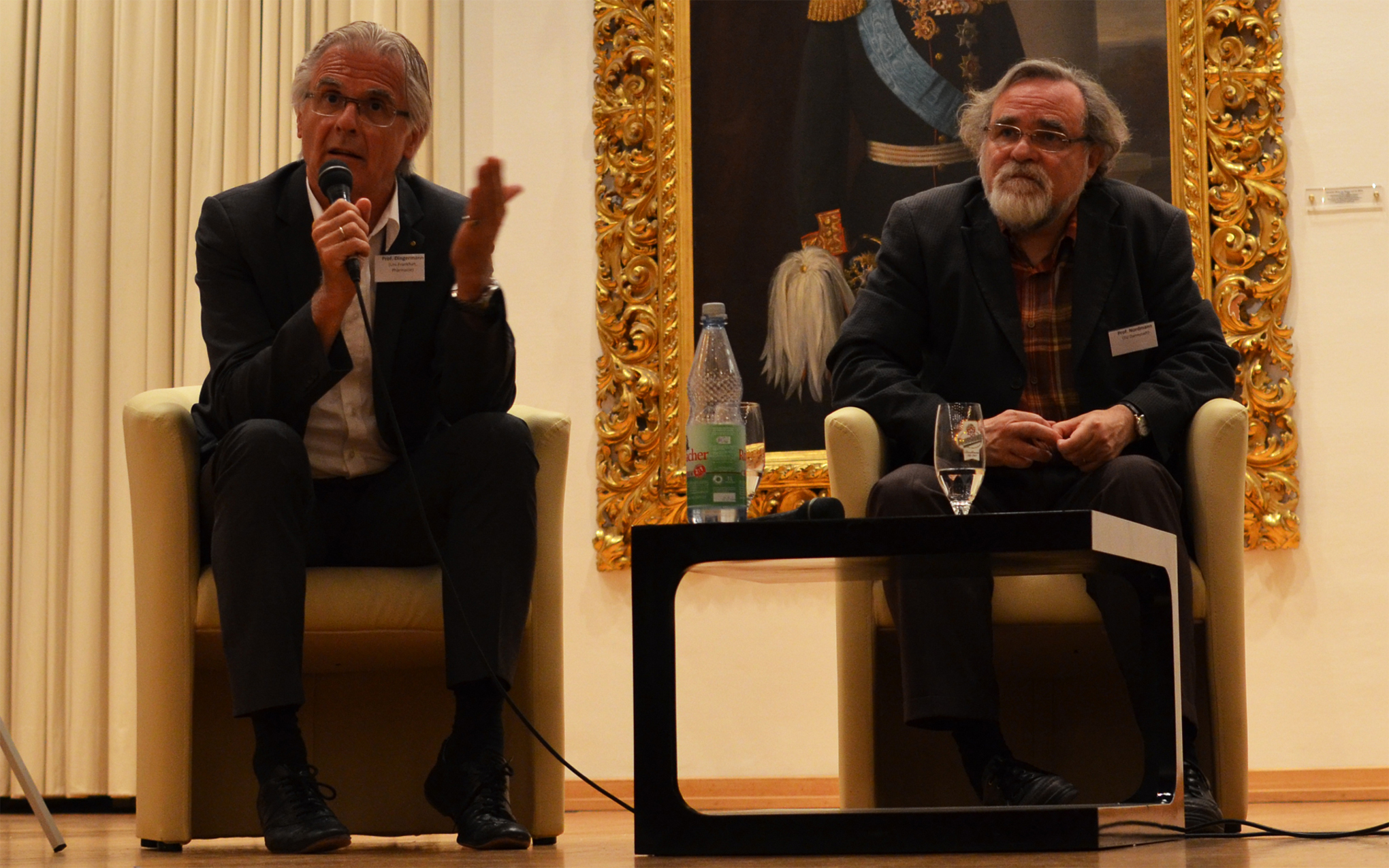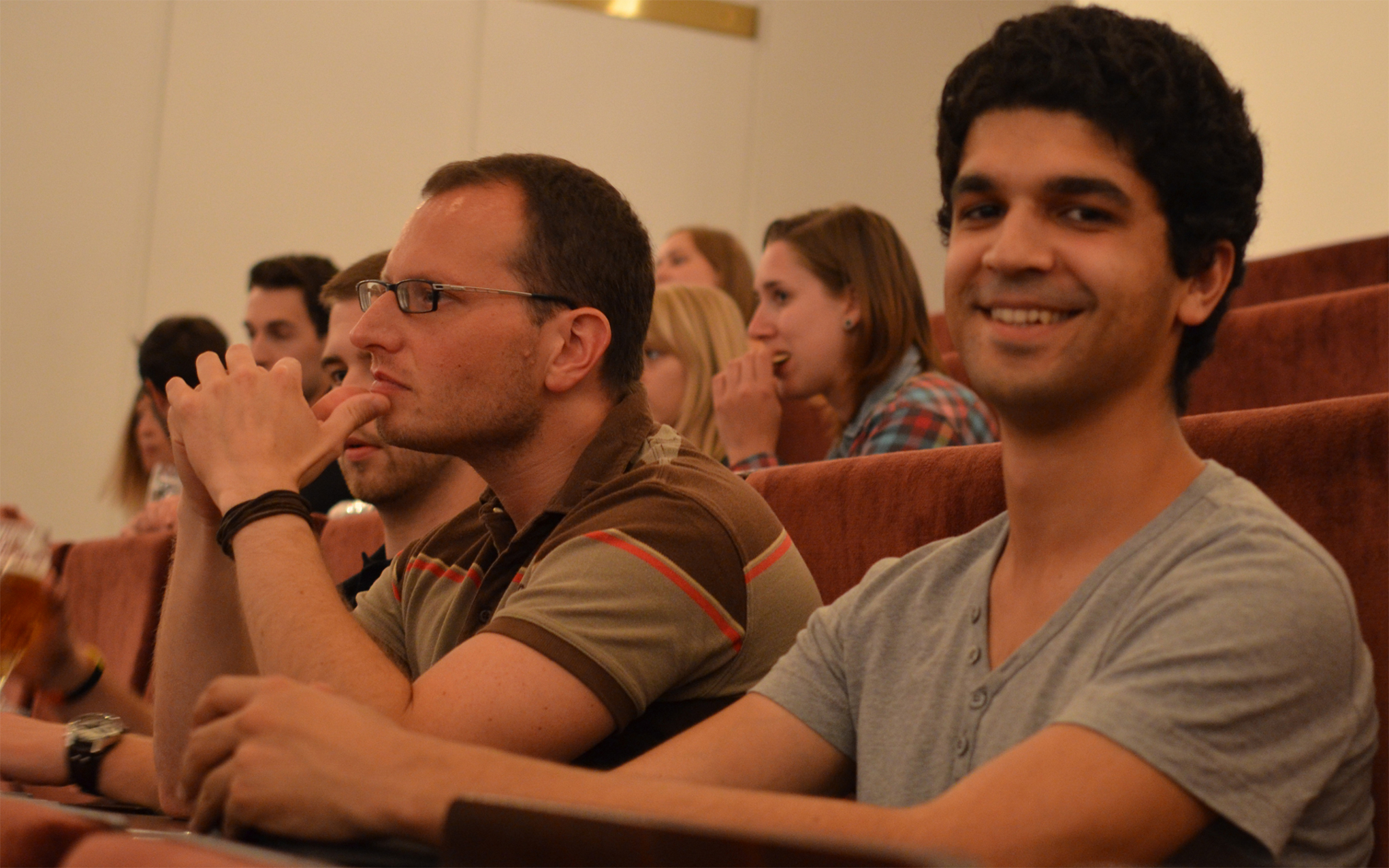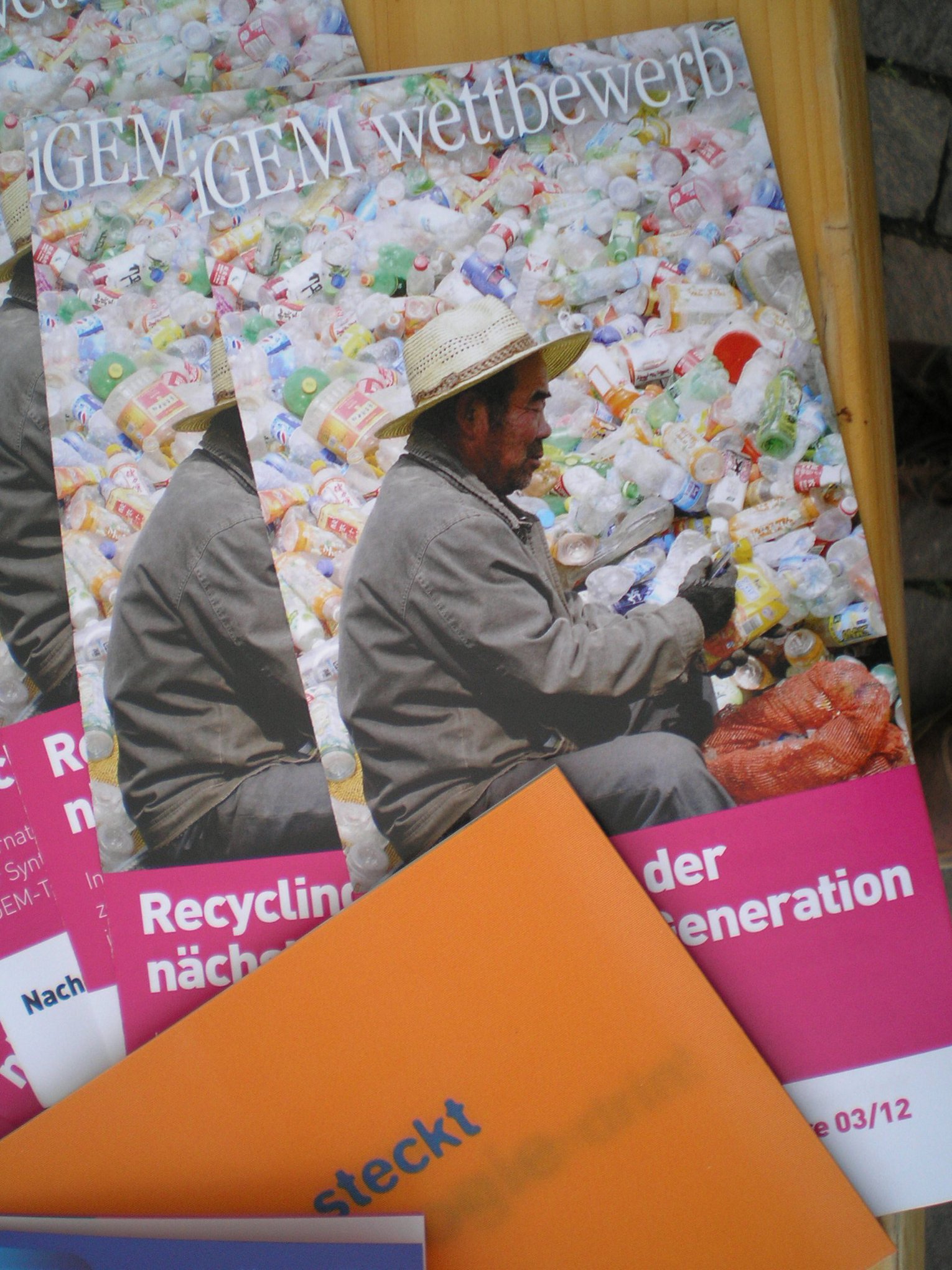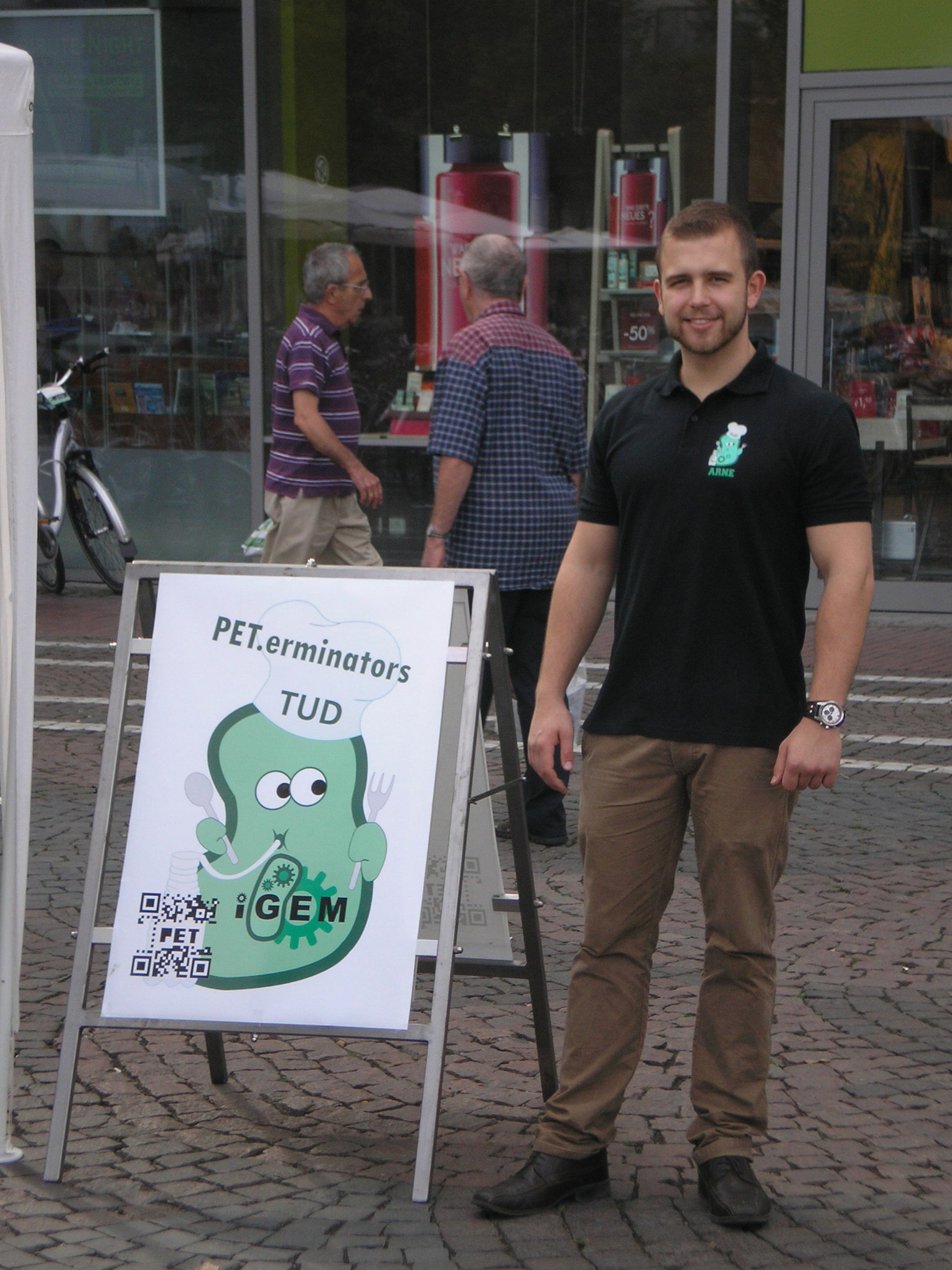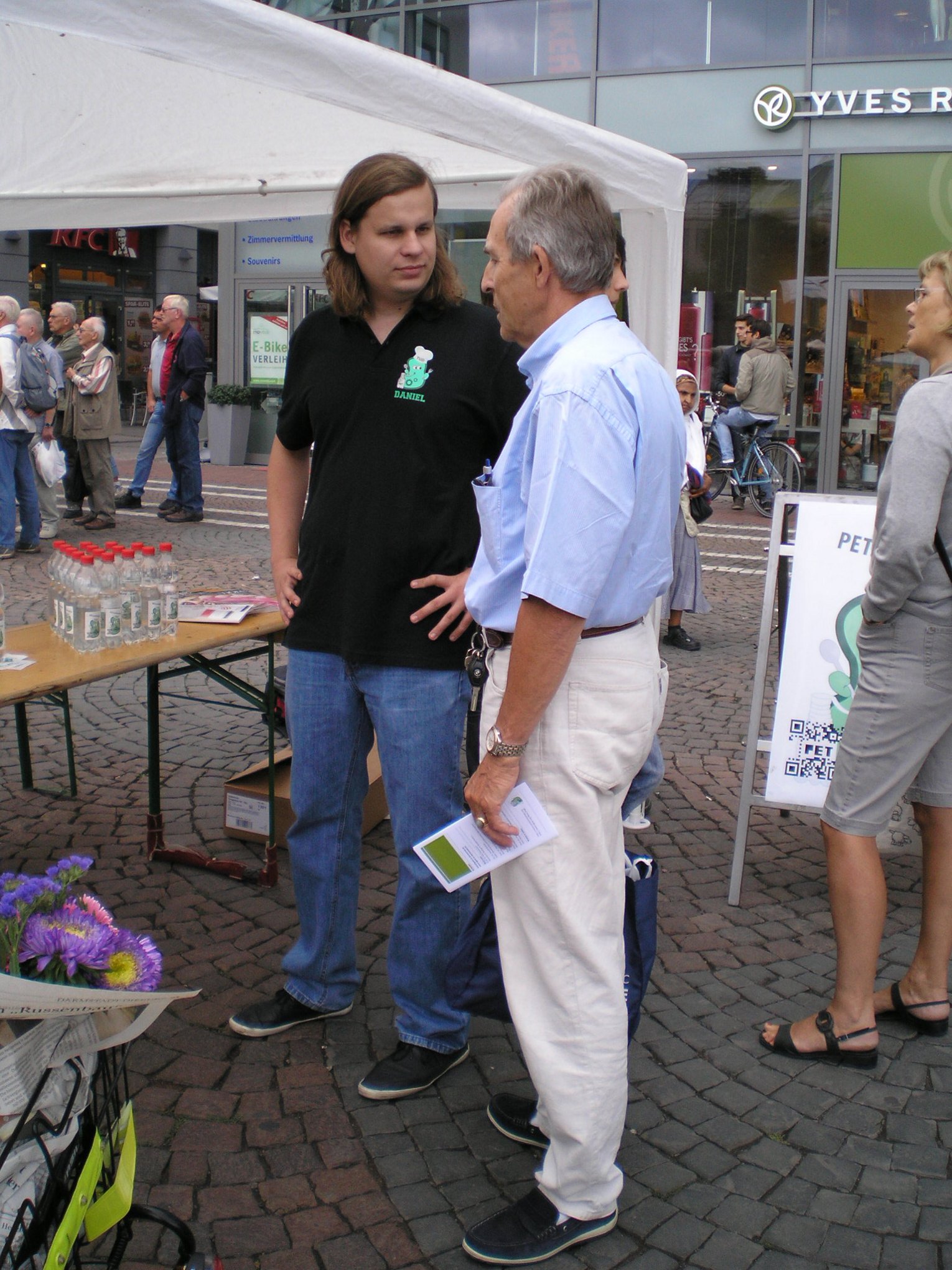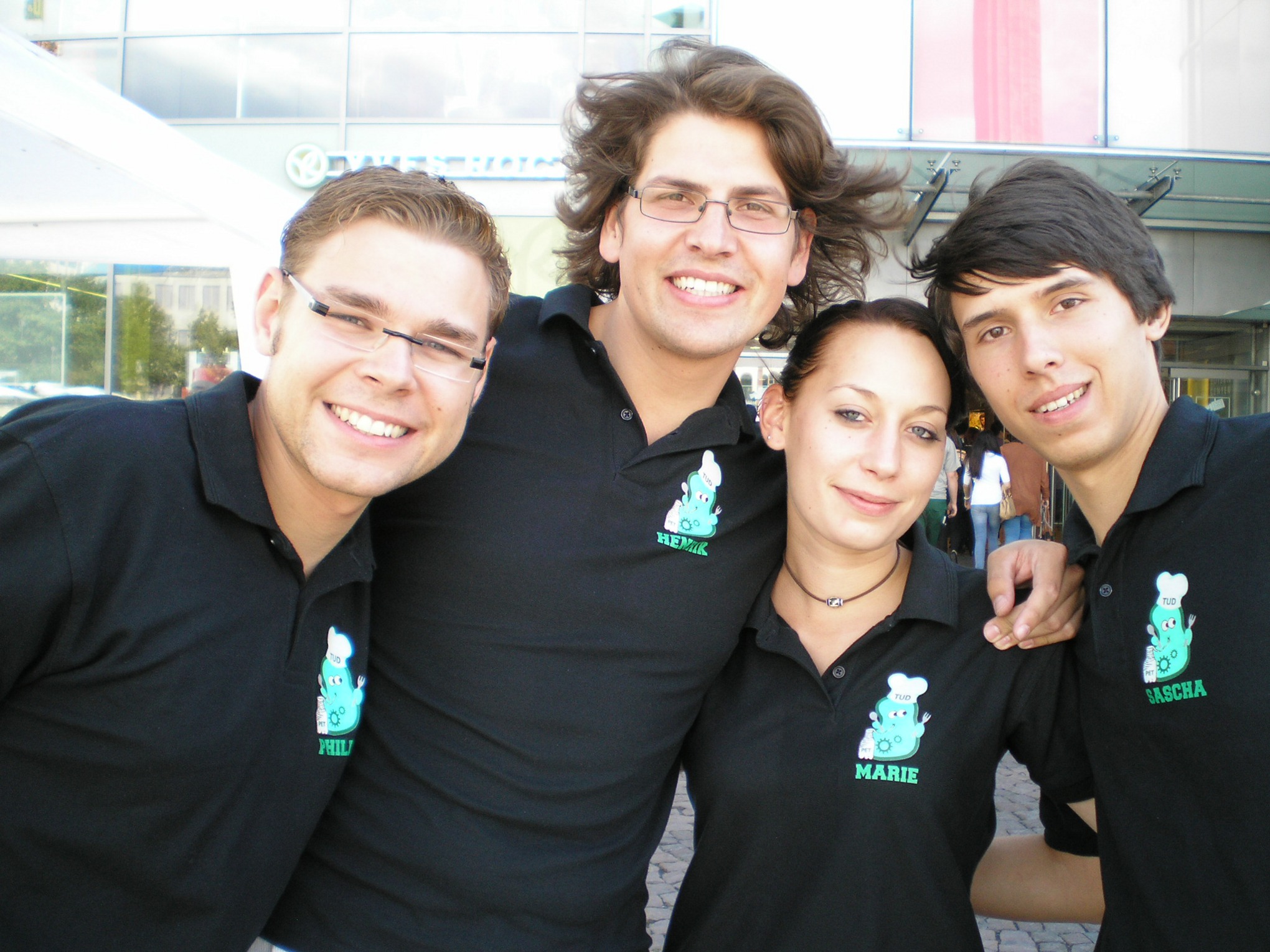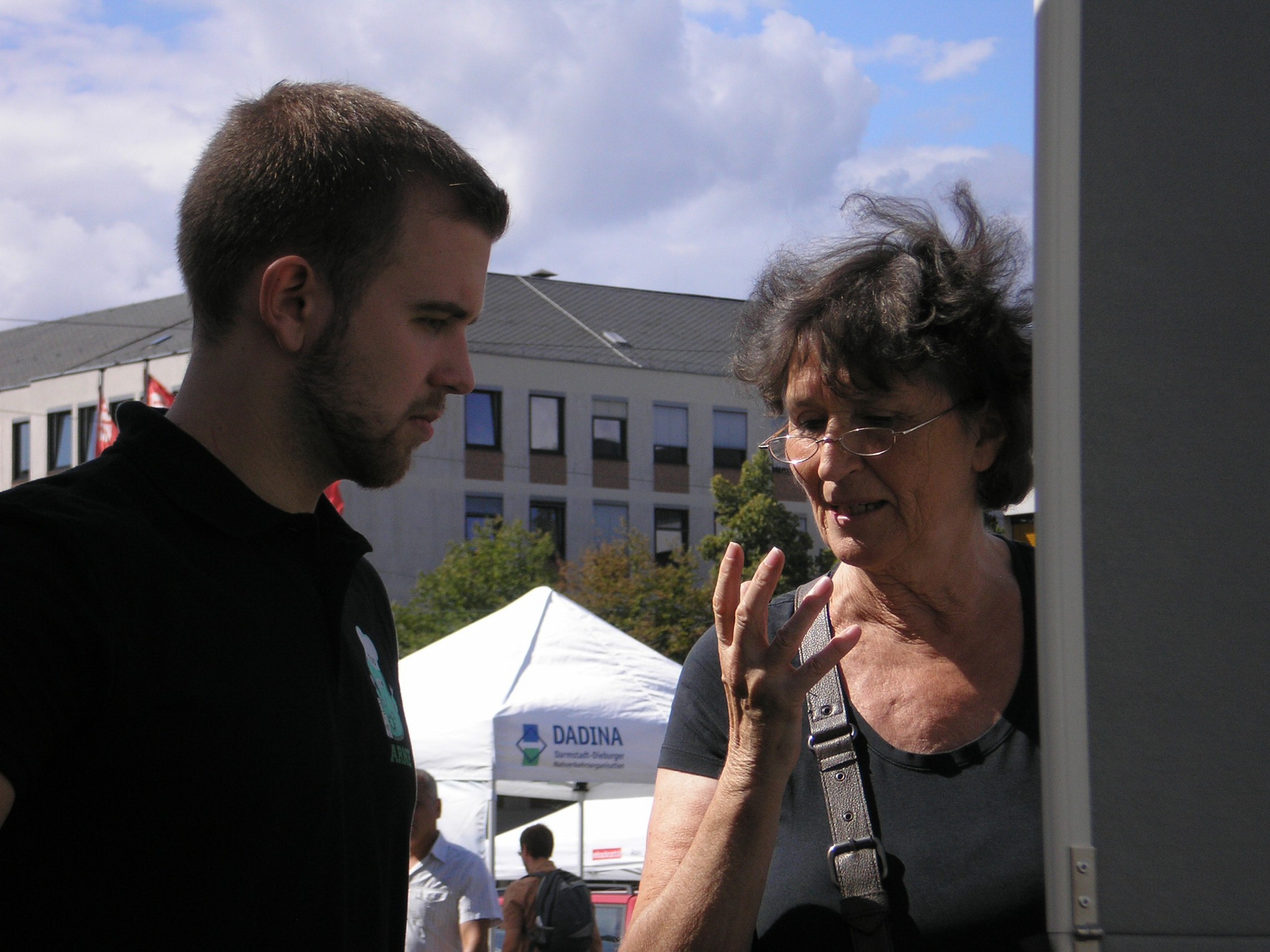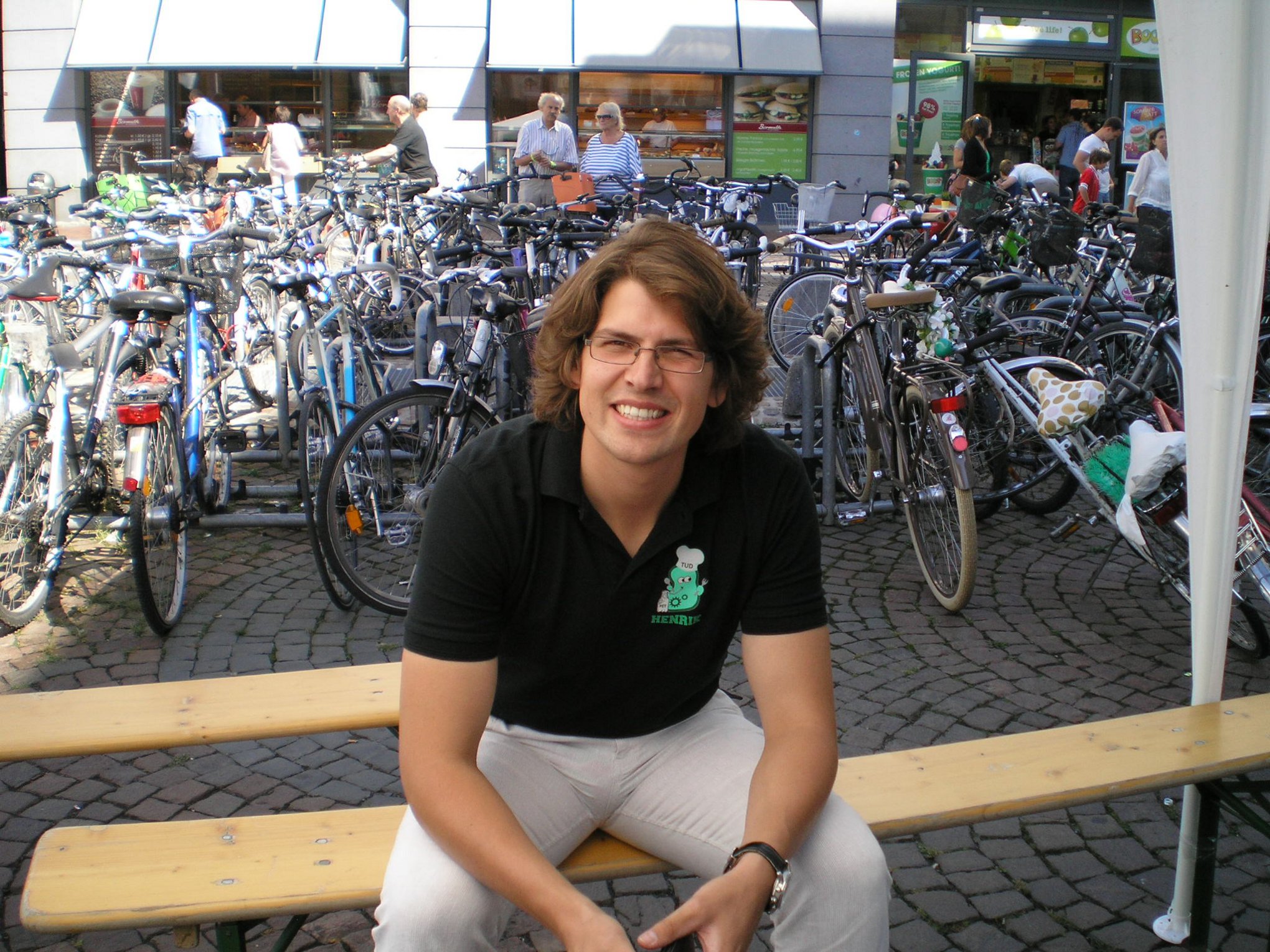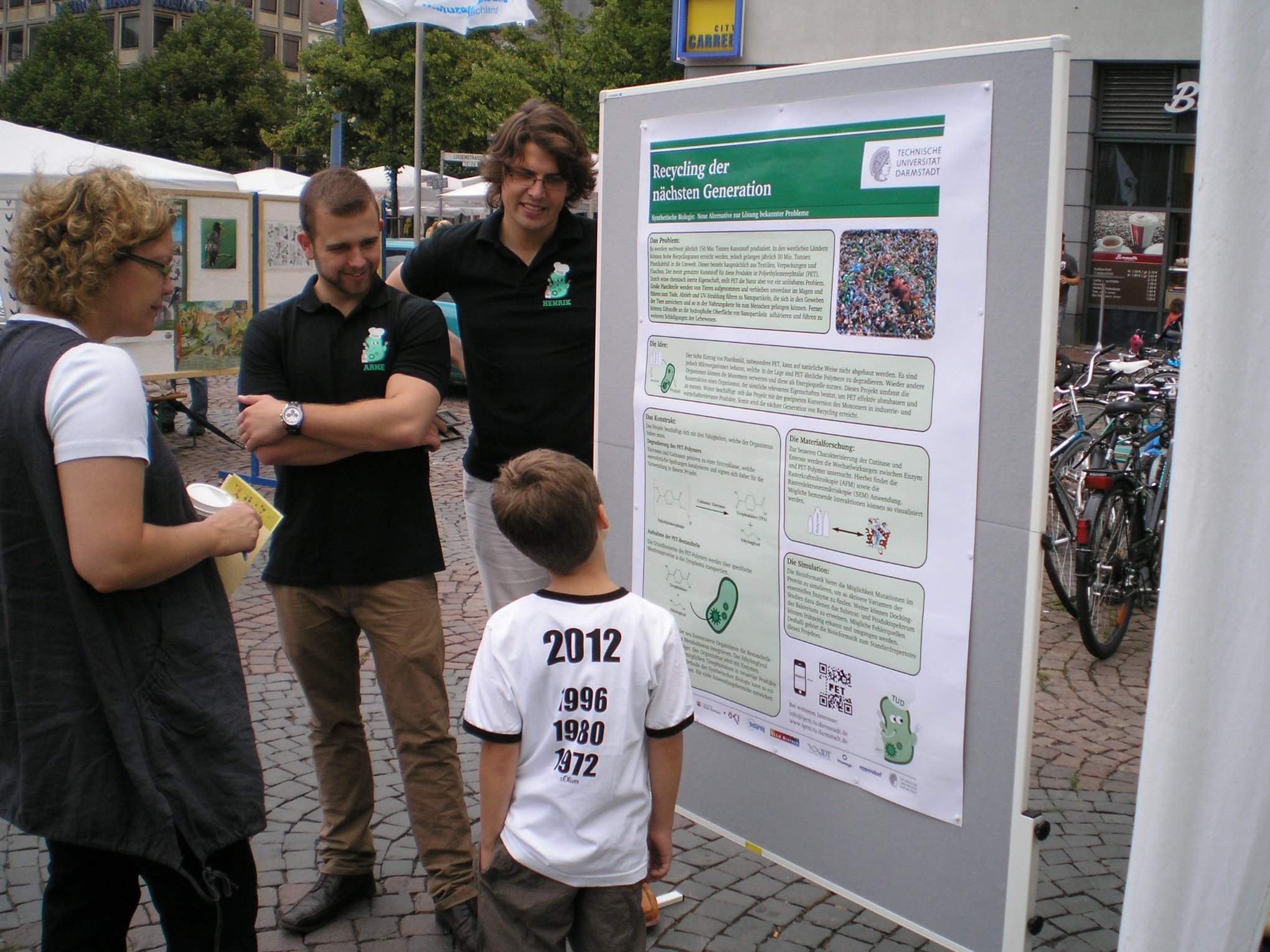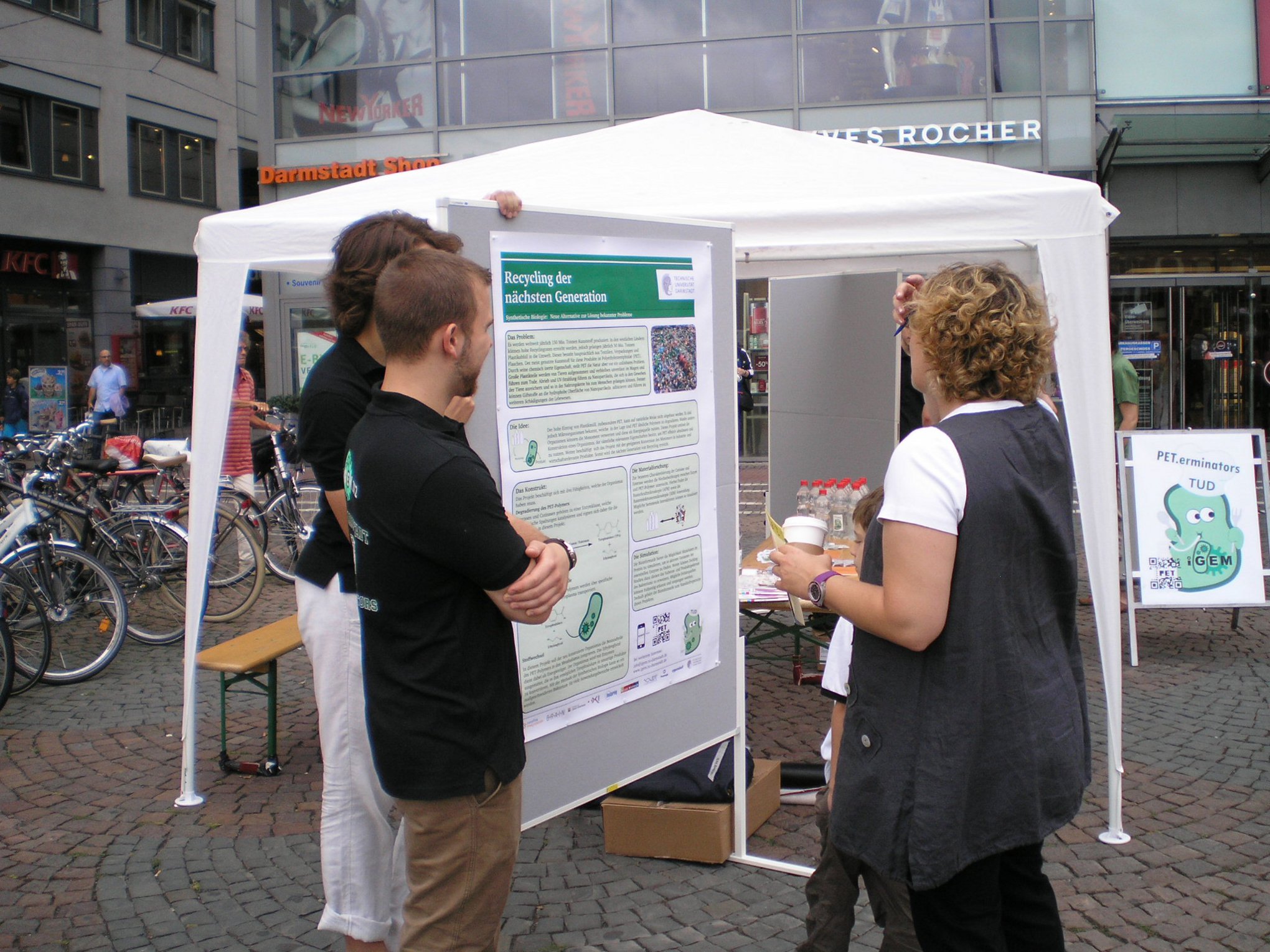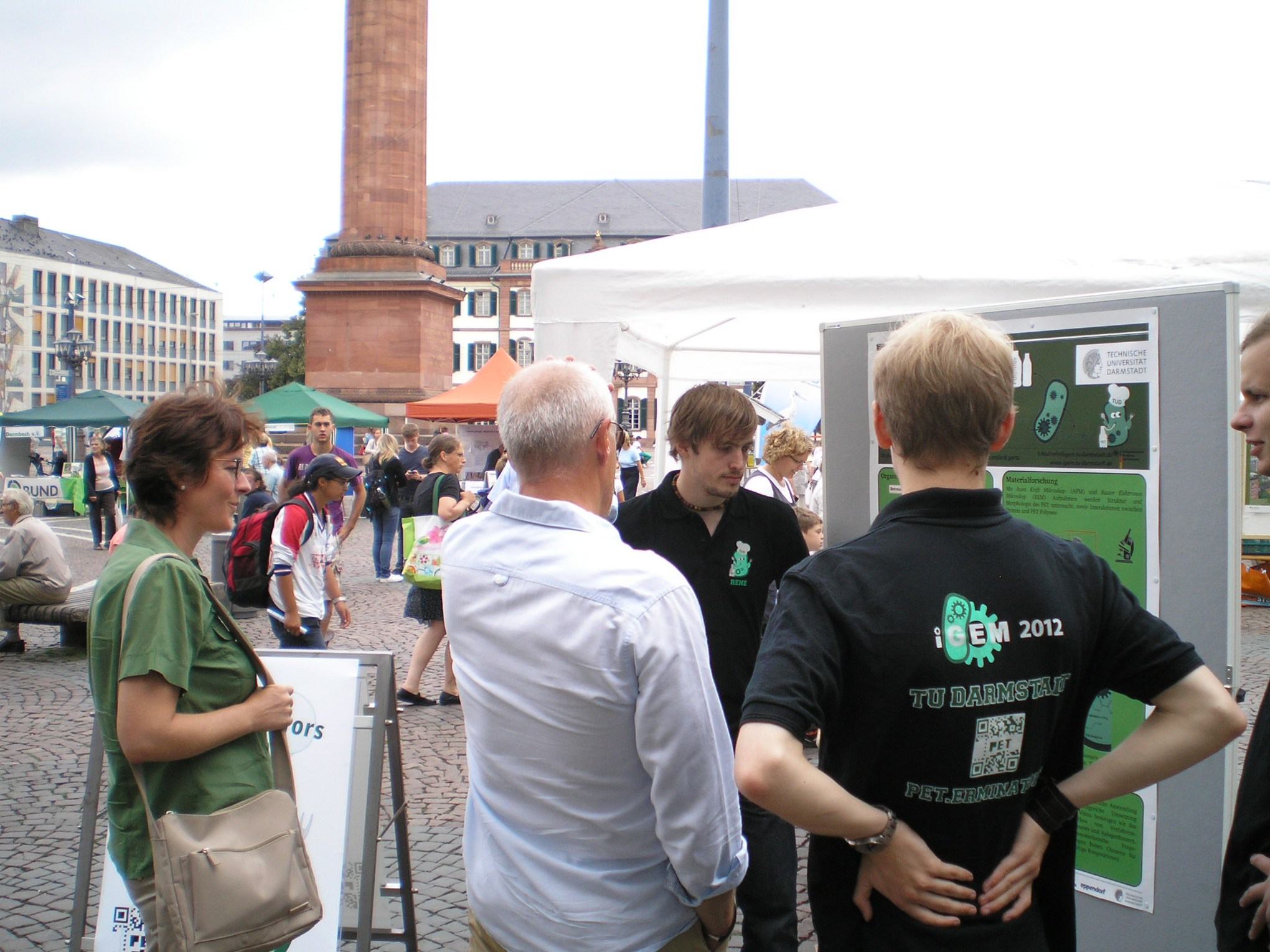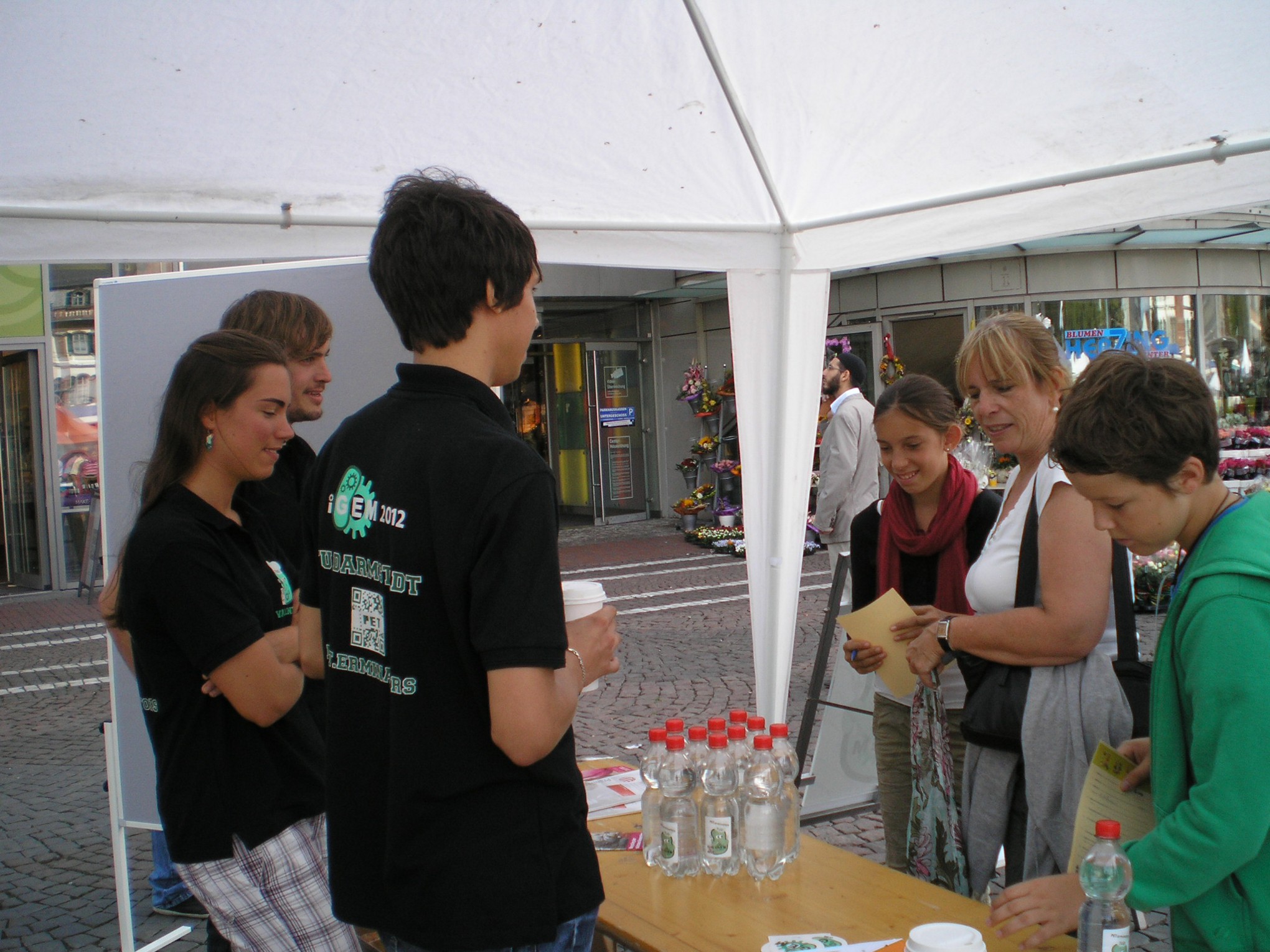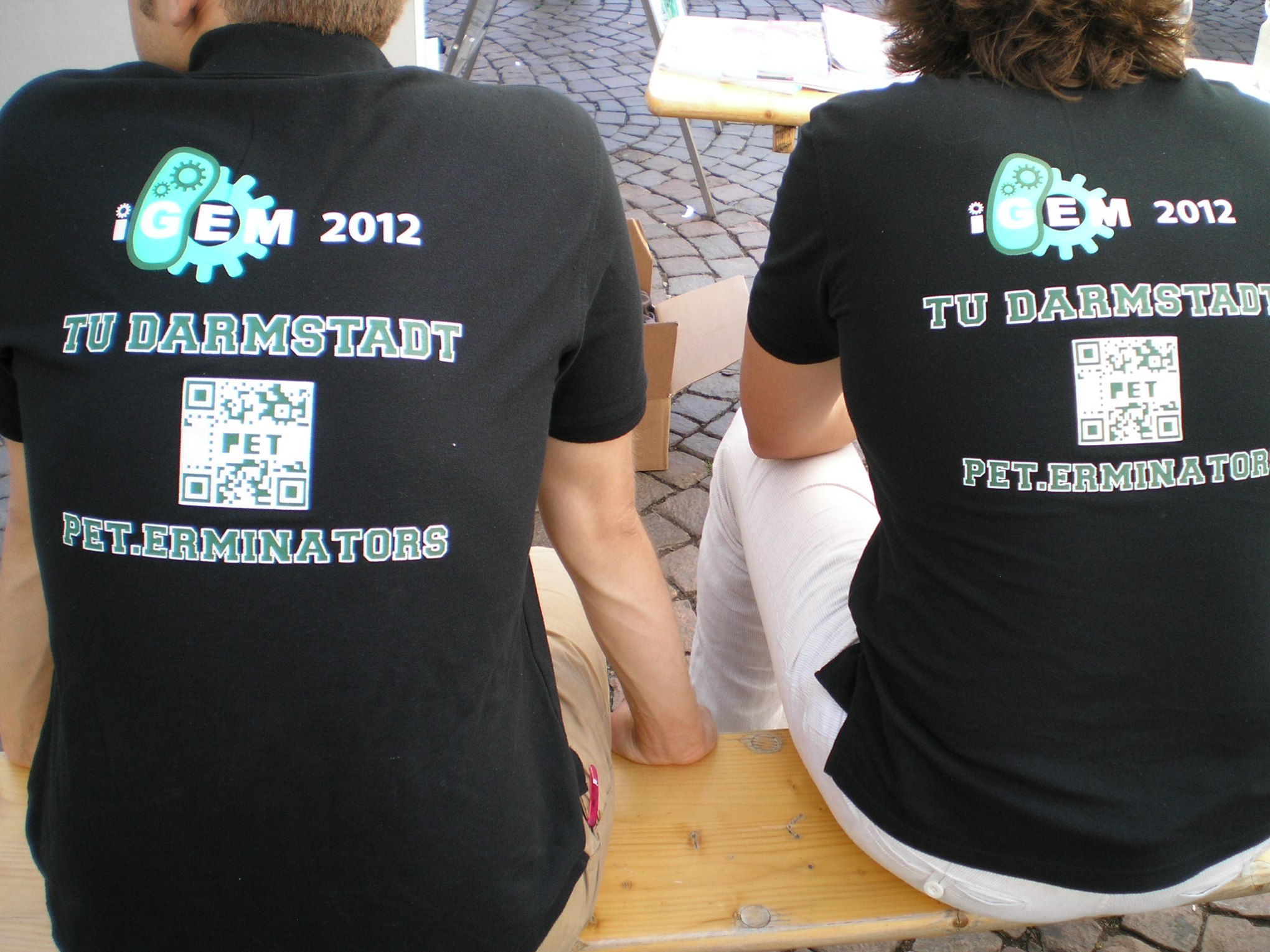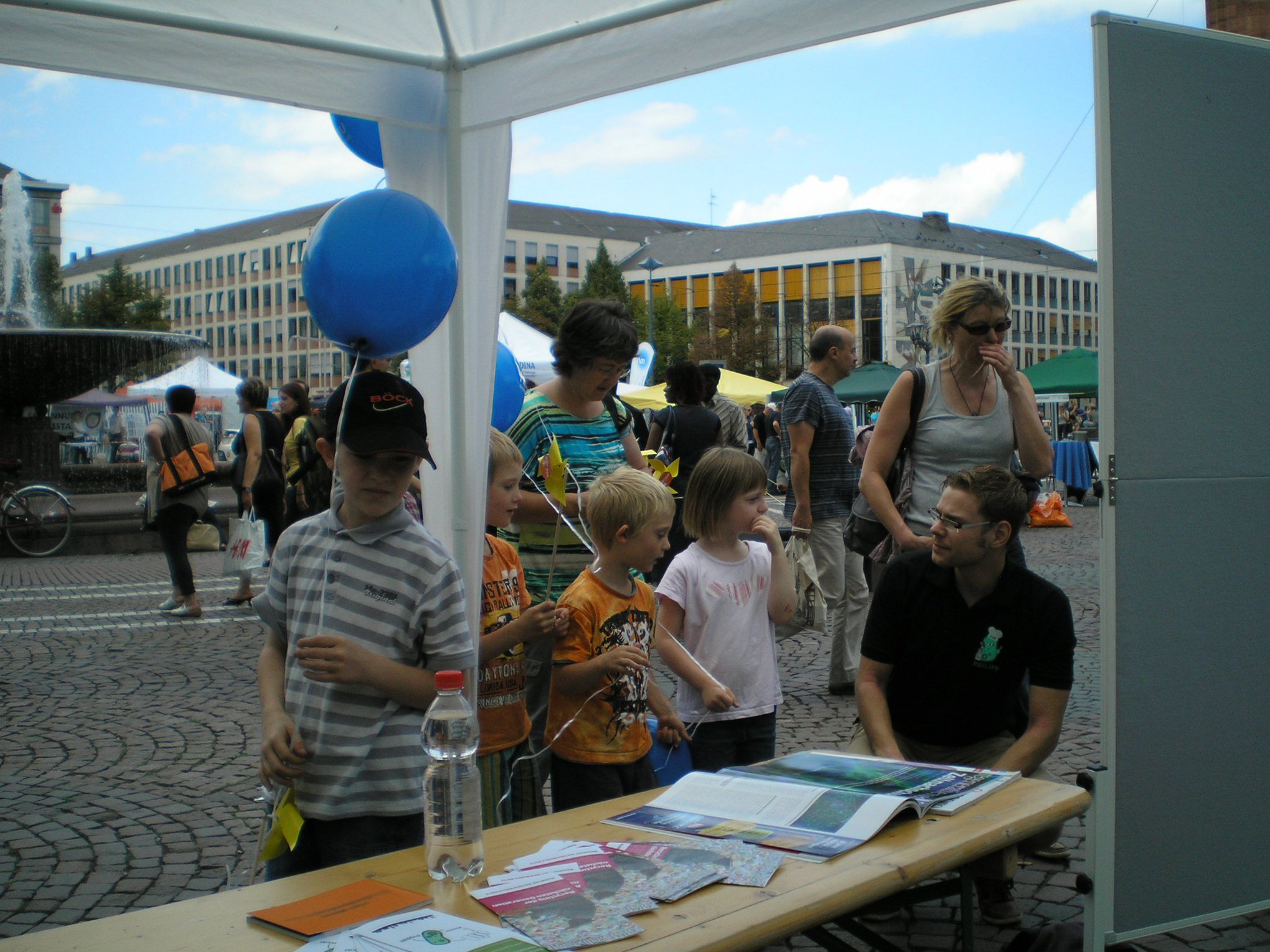Team:TU Darmstadt/Human Practice
From 2012.igem.org
Contents |
Human Practices
While the iGEM team from Darmstadt was developed the project they quickly realized that the degradation of PET and the recovery of resources are a topic for the entire population.The question was how to infrom the total population, and how to reach them best. From this space, the iGEM team decided to awar five braod areas of the population. To do so, the team has participated in or self-organized events, which cover many areas of the society. The events became clear that Synthetic Biology was not well known in part or was highly controversial. The team took on the task of eliminating the misinformation and to discuss the impact and safety assessment.
The team has organized a student laboratory, in which the students themselves can experience Molecular Biology. Students should learn that DNA and proteins are ordinary tools of biologists. The students have seen, by what means organisms are changed and what safety standards prevail in an S1 laboratory. In a final discussion students could ask about synthetic biology.
A second important area in Germany is the older generation. Demographic trends in germany goes on towards a older society. Traditional and often conservative thinking restricts the development and especially the exploration of new technologies. For this reason, the iGEM team of Darmstadt took part in a senior session of chemists in order to elucidate the older generations about the new technologies. Often, the older one has to face with fear of things, they do not even know. The team has tried to take the fear and open and honest talk about opportunities and risks of synthetic biology. The enthusiasm of the team was also well received by the elderly.
Another aspect is mainly the industry, because they are interested in most cases for new technologies. The iGEM team from Darmstadtgot the oppurtunity to present their project to an economic audience at ACHEMA. It attended quickly that the questions about the project were very different. Even at the ACHEMA the team had to made persuasions to the company and also informs about the new technology of synthetic biology. Risk management plays a special role, as the technology is in contact to the production and further with the consumer.
Another area in which it should be informed and discussed is the science itself. The CAS Conference - Synthetic Biology offered a good place especially for discussion. Here got the team from Darmstadt the opportunity to present their project to a consortium of scientists. Discussions quickly immersed themselves in tiny scientific details. A perfect opportunity to meet the other teams and to see how good the competitors are.
Probably the most important section of the population are people from everyday life. To achieve these people, the iGEM team had organized an interactive panel discussion. Here was the population of Darmstadt and surroundings informed of the project and of course biotechnology and also Synthetic Biology. Guests were able to actively participate in the discussion and remained even after the end a few hours there. The eventday that has been initiated by the eleven German iGEM teams in BErlin, the team was able to take part at a "Umweltbörse". This gave the team an excellent opportunity to address the people on the street to interested in the project. Since the project of the iGEM team dealing with environment and recycling, it fits good in this eventday of the city of Darmstadt. It's a long way for synthetic biology to be accepted as normal technology in Germany. The iGEM team from Darmstadt played a small part in this game but the following iGEM teams in Germany will also do so.
1. Junior
9th September 2012 Lab course with students from Highschool
To make not only the iGEM competition, but also the Synthetic Biology well known in the public awareness, the Darmstadt iGEM team decided to host a student internship. At the beginning of Sempetmber came about 20 students of the Ludwig-George School to the Biology campus of the TU Darmstadt. In this laboratory course students were able to transpose their theoretical knowledge of molecular biology techniques into practice. Their task was to analyze as a molecular detectives an unknown meat sample on their species. For this purpose, the students were allowed to purify mitochondrial DNA and perform PCR on this DNA. After a restriction digest and separation of the resulting fragments with agarosegel-electrophoresis the students werde able to define the species of their samples. During the breaks, the iGEM team used the opportunity to present their project to the students and to discuss the importance of synthetic biology. The students were very receptive to the topic and immediately recognized that such issues in school playing no role and should be discussed morde often. It was not only a new experince for the students, but also for the iGEM team to discuss ethic issues of Synthetic Biology and how the society could learn more about the opportunites which ar given by that.
We really enjoyed the day with the iGem Team. We learned a lot of new things, but we also repeated what we already knew from school. It helped a lot that we could do the experiments on our own, because in biology it is very difficult to understand experiments if you don´t see them in front of you. If we had questions, we could ask the iGEM team and they explained it very well. They also explained us the idea of the bacterium which is able to recycle plastic and the whole group liked the idea. Altogether it was a very interesting and informative day and it should be possible for every class to take part in something like this.— Selina Lerch and Anna-Lousia Stroh
The day with the iGem team realy helped me to understand the topics which we talked about in class theoretically. Because to see it and do it myself put it into a state of reality that made much more sence than a thing that you just talk about. It was very nice and interesting to do experiments in a real laboratory and to imagine being a biologist who wants to find the biological origin of an unknown sample. And generally to know that something like this is possible is fascinating. I would like to do something like this again and I would suggest to do it with my friends.— Venezia Renner
2. Senior
9th - 11th May 2012 4th Anaual Meeting of Senior Experts of Chemistry (GDCh)
After the project of the iGEM team of TU Darmstadt stood firm and the beginning of labwork came up, the team had the opportunity to present their project to the older population. The Society for German Chemists (GDCh) organizes every year a meeting of senior experts in chemistry. At this congress, the team could occur with three posters and convince the elderly from their project "Next Generation Recycling". The project met with great interest, and there were long discussions about costs and feasibility of it. It was not unusual that present chemists themselves were involved in the production of plastics or on the other hand developed new chemical-based recycling processes on it. Many did not know the way of seeing things with the view of biology yet and were surprised what opportunities this offered. The iGEM team quickly realized that it is not easy to convince a chemist from biology. It was easy to explain the degradation of the polymer with its chemical structure, but it is more difficult to explain genetics and even more the BioBrick system. Nonetheless was the presentation a huge success and they were able to convince the older population of the idea. It was not only convinceing the people for the project, but also the discussion about the new topic of Synthtic Biology, which is a contrary topic in germany. It was important for the team to achieve not only one group of population in germany but as many as possible. For the team it is necessary to inform the population about new scientific technologies in a true and open way. Chemists, who are still working and dealing with the recycling of waste, came to the team and wanted to know if the project could be extended to other substances. It turns out that the method of bioremidation is not used in its maximum manner and there are a lot more tasks outside to deal with. So the project of the iGEM team of darmstadt is a hint into to the future and could soon find its application.
3. Economy
18th - 22nd June 2012 Exhibition of our project at the ACHEMA
The Federal Ministry of Education and Research (BMBF) had invited the Hessian iGEM teams to the ACHEMA in Frankfurt. ACHEMA is the largest exhibition on Chemical Engineering, Environmental Protection and Biotechnology, and offered the iGEM teams interested Audience during the presentation of their projects. At the booth of the BMBF, the teams of Darmstadt, Frankfurt und Marburg were able to present their projekts. The Darmstadt team could not only inspire the audience with posters, but also with a presentation as well as many flyers for their project. Laymen, scientists and companies could be convinced by the project "Next Generation Recycling" of the Technical University of Darmstadt. The contact to the other iGEM teams from Hessia was of course promoted and it was possible to replace the content and progress of the projects. Our project offers in the area of environmental protection, many approaches, so it was not surprising that the German Federal Environmental Foundation (DBU) was interested in our project. Members of the DBU stayed a long time for intensive discussions at our booth. To conclued the ACHEMA offered us an exciting platform on which we could perform a "reality check" of our project. The interestng discussions with members of economy and sceince showed us the deep meaning of our project and point out that the iGEM Team of Darsmatdt is on a good path.
28th June 2012 3rd Anual Meeting of Strategic Process Biotechnology 2020+
The Federal Ministry of Education and Research (BMBF) had invited all German iGEM teams to 3rd Anual Meeting of Strategic Process Biotechnology 2020+ to participate. The German teams had the opportunity to see eachothe for the first time. The conference was attended by representatives from academia, industry and other research institutes. The aim of the conference was to generate new interdisciplinary cooperation that give rise to new ways in the field of biotechnology in Germany. The iGEM teams occured as proponents of new minds and ideas of the future. Representatives of the iGEm team of Darmstadt had to meet economic and scientific questions from the audience about their project. At a panel discussion it became clear that the conscious use of resources and especially the recovery of these in Germany have to play an important role in the future. The Darmstadt iGEM team became clear that their project had met the ravages of time. Apart from the other iGEM projects the teams were able to provide an overview of the development of biotechnology in Germany. It struck quickly, as well as the Red and White Biotechnology have precedence the furthest in the development. New technologies such as systems biology and particularly synthetic biology were observed more critically. Here the iGEM teams were aware that it applies to the next scientific generation to discuss topics like synthetic biology in an open and honest way and espescuially integrate the population. From this space the German iGEM teams have pronounced an eventday on 25th of August. All german teams common in public to inform on their projects and also synthetic biology. It is up to the young scientists to inform about new technologies to reflect them so that they can be explored and used in Germany.
4. Science
23rd - 25th July 2012 CAS Conference - Synthetic Biology
The Center for Advanced Studies at the Ludwig-Maximilians University in Munich organised a conference for Synthetic Biology on the campus Martinsried. On this occasion not only top researchers from around the world were invited, but also the German, British and Dutch iGEM teams. The iGEM team from the Technical University of Darmstadt was able to present their project "Next Generation Recycling" to scientific audience. Furthermore, it was a reunion of the german iGEM teams which met on the 3rd Annaul Meeting of Strategic Process Biotechnology 2020+ in Belrin. At the congress the teams could discuss their projects and also the chalenges they were faced during the lab work. The presentations provided insights in the latest research in Synthetic Biology and its application. At the end Jay Keasling, a famous representatives of the Synthetic Biology, talked about his urgent research projects. The CAS Conference gives the iGEM Teams the occasion to learn about the other teams outside of the iGEM Jamboree. Special thanks for the LMU Munich iGEM Team for their great organisation of the evening with al the other teams.
5. General Public
3rd July 2012 Interactive Panel Discussion
To inform the population of Darmstadt about the iGEM project of the Technical University, the team had organized an interactive panel discussion. The event took place in the State Theatre of Darmstadt. Experts in the topic of biotechnology were invited from the field of science and industry. The iGEM team from Darmstadt could get Dr. Mauer for the panel discussion, who had worked for 25 years for Henkel and became new Director of Business Development of AB Enzymes. Prof. Dingermann from the Goethe University in Frankfurt took part as a scientific representative for red biotechnology. Prof. Warzecha of the TU Darmstadt was proponentas Instructor of the iGEM team and also represented the green biotechnology. For the ethical and moral issues in the field of Biotechnology, the team from Darmstadt won Prof. Nordmann, working on the philosophy of Synthetic Biology. At the beginning of the event, Prof. Warzecha conducted a presentation on biotechnology. He gave the audience a short overview of biotechnology and its applications in today's world. He spoke to the fears of the people and tried to fix them. This was followed by the presentation of the project of the iGEM team by Arne Wehling. Afterwards followed a "get-together", in which the audience could personally talk with the speaker and members of the iGEM team. The audience had the opportunity to write down questions on flipcharts that should be answered in the upcoming panel discussion. In the subsequent panel discussion were the issues of the flipcharts discussed with the audience and the experts. The panel was moderated by Hernik Cordes, who also brought in the discussion as a representative of the team. The event officially ended after three hours, but enough guests remained until late in the evening with the experts and students to discuss about the pro and contra of biotechnology and also Synthetic biology. It was a good step of the iGEM team of Darmstadt to organize this interactive panel discussion, as it allows to reach the population. The event shown young scientist, which converns prevail in the population and which misinfromation need to be clarify.
25th August 2012 "Umweltbörse Darmstadt"
At the 3rd Anual Meeting of Strategic Process Biotechnology 2020+ the eleven German iGEM teams agreed to a common event throughout Germany on Synthetic Biology. This took place on 25th August in the respective cities. The TU Darmstadt iGEM Team was particularly lucky, because at this time the environmental agency of the city of Darmstadt organized an environmental event at the Ludwigs Platz in the heart of Darmstadt. This meant that the iGEM team got the oppurtunity to bring their projekt people from small to large in more detail. This was a great to bring the Synthetic Biology more closer to the general public. The project is about a positive response pushed and inspired even more so at the will of the young scientists.
 "
"
